Mitglieder/Members
Derzeit amtierender Rat ab 2.6.2025 /
Council currently in office as of 2 June 2025
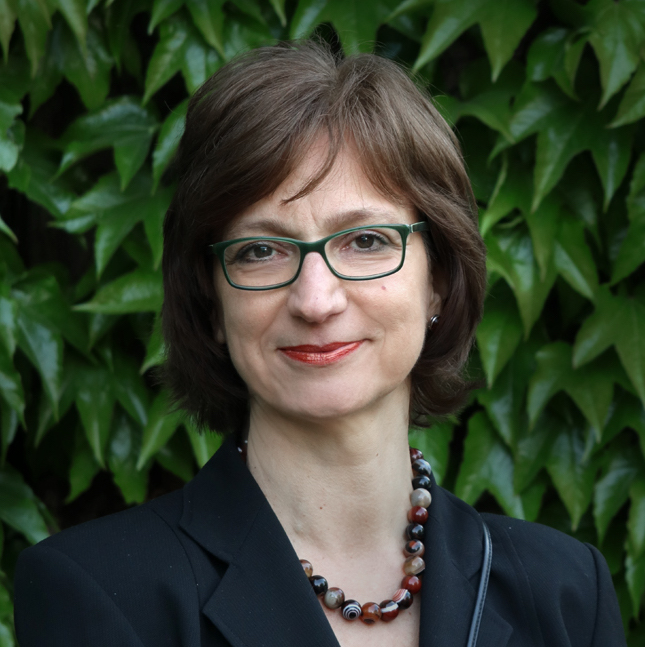
Dorothee Bienert
/Mir ist wichtig, dass Kulturschaffende, Politik und Verwaltung gemeinsam daran arbeiten, Kultur für alle zu ermöglichen, denn Kultur ist unverzichtbar für den gesellschaftlichen Zusammenhalt. Im Rat werde ich mich besonders für die Stärkung der Kulturellen Bildung einsetzen, damit junge Menschen unterschiedlichster Hintergründe empowert werden. Sie sind die Zukunft dieser Stadt, an ihnen darf nicht gespart werden!
/Dorothee Bienert leitet seit 2023 den Fachbereich Kultur im Bezirksamt Neukölln. Zum Fachbereich gehören drei kommunale Galerien (Galerie im Körnerpark, Galerie im Saalbau, Kunstbrücke am Wildenbruch), die Kulturhäuser Gemeinschaftshaus Gropiusstadt, und Alte Dorfschule Rudow sowie die Jugendkunstschule Young Arts Neukölln mit 4 dezentralen Standorten, , die alle niedrigschwellige Kulturangebote auf hohem Niveau anbieten. Außerdem führt der Fachbereich Kunst-am-Bau-Projekte im Bezirk durch und vergibt Fördergelder in unterschiedlichen Kultursparten.
Dorothee Bienert studierte Kunstgeschichte und Slawistik in Bonn und Berlin. Seit 1996 arbeitete sie als freie Kuratorin und Publizistin, initiierte europaweite Projekte an der Schnittstelle von Kunst und Gesellschaft und kuratierte Ausstellungen für Institutionen wie ifa, nGbK, Kunstraum Kreuzberg. Von 2003 bis 2008 war sie künstlerische Leiterin der 3. und 4. Ars Baltica Triennale der Fotokunst in Kiel, Bergen, Malmö, Vilnius, Riga, Pori/FI und Tallinn. 2007 begründete sie zusammen mit Antje Weitzel und Marina Sorbello den Projektraum uqbar in Wedding, wo sie eng mit zahlreichen Berliner Künstler*innen zusammenarbeitete. Von 2017 bis 2022 leitete sie die kommunalen Galerien in Neukölln und initiierte in der Zeit die Kunstbrücke am Wildenbruch, einem Ort für künstlerische Experimente und interdisziplinäre Projekte.
It is important to me that cultural professionals, politicians and administrators work together to make culture available to everyone, because culture is essential for social cohesion. In the council, I will be particularly committed to strengthening cultural education so that young people from all backgrounds are empowered. They are the future of this city and must not be cut back!
Dorothee Bienert has been head of the Department of Culture at the Neukölln district office since 2023. The department includes three municipal galleries (Galerie im Körnerpark, Galerie im Saalbau, Kunstbrücke am Wildenbruch), the cultural centers Gemeinschaftshaus Gropiusstadt and Alte Dorfschule Rudow as well as the youth art school Young Arts Neukölln with 4 decentralized locations, all of which offer low-threshold cultural activities at a high level. The department also carries out art-in-architecture projects in the district and awards funding in various cultural fields.
Dorothee Bienert studied art history and Slavic studies in Bonn and Berlin. Since 1996 she has worked as a freelance curator and publicist, initiated Europe-wide projects at the interface of art and society and curated exhibitions for institutions such as ifa, nGbK, Kunstraum Kreuzberg. From 2003 to 2008 she was artistic director of the 3rd and 4th Ars Baltica Triennial of Photographic Art in Kiel, Bergen, Malmö, Vilnius, Riga, Pori/FI and Tallinn. In 2007, together with Antje Weitzel and Marina Sorbello, she founded the uqbar project space in Wedding, where she worked closely with numerous Berlin artists. From 2017 to 2022, she managed the municipal galleries in Neukölln and initiated the Kunstbrücke am Wildenbruch, a space for artistic experiments and interdisciplinary projects.
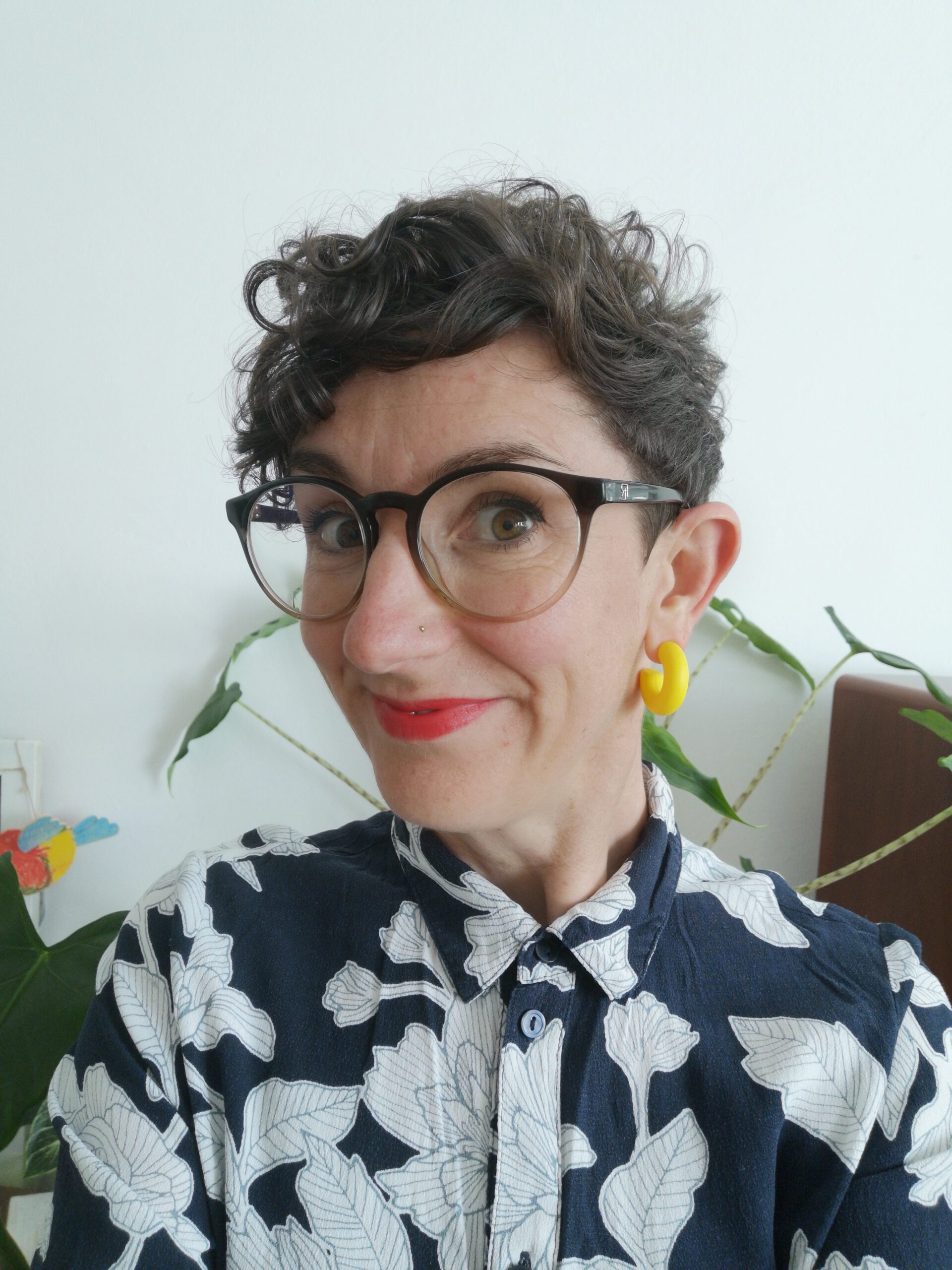
Kate Brehme
Freie Szene / Berlinklusion
Kate wurde zunächst als Künstlerin ausgebildet, hat einen Master in Museumsstudien und promovierte an der Technischen Universität Berlin über die Biennale für zeitgenössische Kunst und den urbanen Raum. Kate hat in Australien, Schottland und Deutschland an einer Vielzahl von unabhängigen Projekten, Ausstellungen und Veranstaltungen sowie als Kunstvermittlerin für Organisationen wie die National Galleries of Scotland gearbeitet. Im Jahr 2017 war Kate Mitbegründerin von Berlinklusion, einem Kollektiv von Künstler*innen und Kunstvermittlern mit und ohne Behinderung, die Kunstprojekte kuratieren und Kunstorganisationen in Sachen Barrierefreiheit beraten. Gemeinsam hat Berlinklusion Organisationen wie die KW Institute for Contemporary Art, das Haus der Kulturen der Welt, das Bauhaus-Archiv und die Documenta beraten und Projekte wie UNBOUND, Deutschlands erstes zugängliches transdisziplinäres Residency-Programm, initiiert. Zu Kates kürzlich kuratierten Ausstellungen gehören Queering the Crip, Cripping the Queer, eine Ausstellung über Queer/Disability History, Activism, and Culture (Schwules Museum, 2022-23), The Space Between (CLB Berlin, 2023) und Unruly Splendour: Erforschung der Natur durch das Spektrum der Körper (Galerie im Körnerpark, 2024). Kate hat für das NODE Center for Curatorial Studies (2013-2023), das Goethe Institut (2021-22) und für den Master Education in Arts am Piet Zwart Institute in Rotterdam (2014-2024) unterrichtet. Derzeit ist sie Dozentin für Disability Art Studies an der Universität der Künste (UdK), Berlin. Kate ist Mitglied im Rat für die Künste Berlin und im European Arts and Disability Cluster (ADICLUS).
/Ich bringe meine Erfahrungen als unabhängige Kuratorin, die zudem nicht deutsch, behindert, weiblich und Mutter ist, in den Rat für die Künste Berlin ein und bemühe mich, die Anliegen der verschiedenen Communities, denen ich angehöre, zu vertreten. Mit 20 Jahren Erfahrung als unabhängige Kuratorin, die sich auf Disability Arts und Antidiskriminierungsarbeit spezialisiert hat, hoffe ich, mein Fachwissen über Zugänglichkeit in der Kunst und die Gestaltung einer inklusiveren Kunstpolitik weitergeben zu können.
Kate trained initially as an artist, has a Masters in Museum Studies, and completed her doctorate on the contemporary art biennial and urban space at Berlin’s Technical University. Kate has worked in Australia, Scotland and Germany on a variety of independent projects, exhibitions and events, and as an arts educator for organizations such as The National Galleries of Scotland. In 2017, Kate co-founded Berlinklusion, a collective of artists and arts mediators with and without disabilities who curate arts projects and advise arts organisations on accessibility. Together, Berlinklusion has advised organisations such as KW Institute for Contemporary Art, Haus der Kulturen der Welt, The Bauhaus Archive and Documenta, and initiated projects including UNBOUND, Germany’s first accessible transdisciplinary residency program. Kate’s recently curated exhibitions include Queering the Crip, Cripping the Queer, an exhibition on Queer/Disability History, Activism, and Culture (the Schwules Museum, 2022-23), The Space Between (CLB Berlin, 2023), and Unruly Splendour: Exploring Nature Through the Spectrum of Bodies (Galerie in Körnerpark, 2024). Kate has taught for NODE Center for Curatorial Studies (2013-2023), the Goethe Institute (2021-22) and for the Masters Education in Arts at the Piet Zwart Institute in Rotterdam (2014-2024). She currently lectures on Disability Art Studies at the University of the Arts (UdK), Berlin. Kate is a member of the Berlin Arts Council (Rat für die Künste) and the European Arts and Disability Cluster (ADICLUS).
I bring my experience as as an independent curator, who is also non-German, disabled, female, and a parent, to the Berlin Arts Council and strive to voice the concerns of the various communities to which I belong. With 20 years experience as an independent curator specialising in disability arts and anti-discrimination work, I hope to continue sharing my expertise on accessibility in the arts and how it can shape more inclusive arts policy.
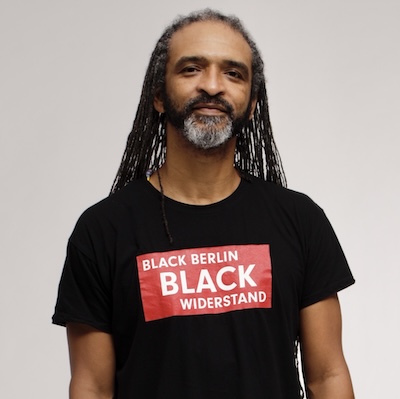
Wagner Carvalho
Wagner Carvalho, geboren in Belo Horizonte, Brasilien, arbeitet seit seinem 12. Lebensjahr in der Tradition des Theaters der Unterdrückten von Augusto Boal.
Er hat eine Ausbildung zum Tänzer, Schauspieler und Sprecherzieher an verschiedenen Schulen in Belo Hor1izonte absolviert. Danach wurde er künstlerischer Leiter der Theaterschule Núcleo de Estudos Teatrais – NET in Belo Horizonte.
Von 1996 bis 2000 studierte er Theaterwissenschaft an der Freien Universität Berlin. Er erhielt Stipendien u.a. vom Goethe Institut und dem brasilianischen Kultusministerium. Seit 1991 führte er zahlreiche künstlerisch-gesellschaftliche Projekte in Deutschland und Brasilien durch. Er übernahm die pädagogische Arbeit und Trainertätigkeit am Berliner Ensemble, Grips Theater und in freien Produktionen. Er war Gründer und Organisator des Forum brasileiro da dança, der Vereinigung der brasilianischen Tänzerinnen und Choreografinnen in Berlin und organisierte die Veranstaltungsreihe Blequitude in Zusammenarbeit mit der Werkstatt der Kulturen und der Heinrich Böll Stiftung im November 2002. Zudem rief er das Festival brasil move berlim – Festival des zeitgenössischen brasilianischen Tanzes ins Leben.
Zu Beginn der Spielzeit 2012/13 übernahm er am Ballhaus Naunynstraße die künstlerische Leitung, die er seit November 2014 alleinig führt. Zudem ist er seit 2016 auch alleiniger Geschäftsführer des Ballhaus Naunynstraße. Seit 2012 ist er Mitglied im Rat für die Künste, Berlin.
Als Künstlerischer Leiter des Ballhauses Naunynstraße und langjähriges Mitglied des RFDK setze ich mich für Berlins vielfältige Kunst- und Kulturszene ein. Besonders liegt mir daran, unterrepräsentierte künstlerische Perspektiven sichtbar zu machen und institutionelle Barrieren abzubauen. Kunst ist für mich Dialog und gesellschaftlicher Impuls – diesen Ansatz möchte ich im Rat für die Künste vertreten. Dafür bitte ich um eure Stimme!
Wagner Carvalho, born in Belo Horizonte, Brazil, has been working in the tradition of Augusto Boal’s Theater der Unterdrückten since the age of 12.
He trained as a dancer, actor and speech teacher at various schools in Belo Horizonte. He then became artistic director of the theater school Núcleo de Estudos Teatrais – NET in Belo Horizonte.
From 1996 to 2000 he studied theater at the Freie Universität Berlin (Free University Berlin). He received scholarships from the Goethe Institute and the Brazilian Ministry of Culture, among others. Since 1991 he has carried out numerous artistic-social projects in Germany and Brazil. He took over the pedagogical and trainer work at the Berliner Ensemble, Grips Theater and in free productions. He was the founder and organizer of the Forum brasileiro da dança, the association of Brazilian dancers and choreographers in Berlin and organized the event series Blequitude in collaboration with the Werkstatt der Kulturen and the Heinrich Böll Stiftung in November 2002. He also established the festival brasil move berlim – Festival des zeitgenössischen brasilianischen Tanzes.
At the beginning of the 2012/13 season, he took over the artistic direction at Ballhaus Naunynstraße, which he has led alone since November 2014. In addition, he has also been the sole managing director of Ballhaus Naunynstraße since 2016. Since 2012 he has been a member of the Rat für die Künste, Berlin.
As Artistic Director of Ballhaus Naunynstraße and a long-standing member of Berlin’s Council for the Arts (RFDK), I am committed to strengthening the city’s diverse arts and cultural landscape. My focus is on amplifying underrepresented artistic perspectives and dismantling institutional barriers. To me, art is both dialogue and a catalyst for social change—an approach I aim to champion within the Council. For this vision, I ask for your vote!.
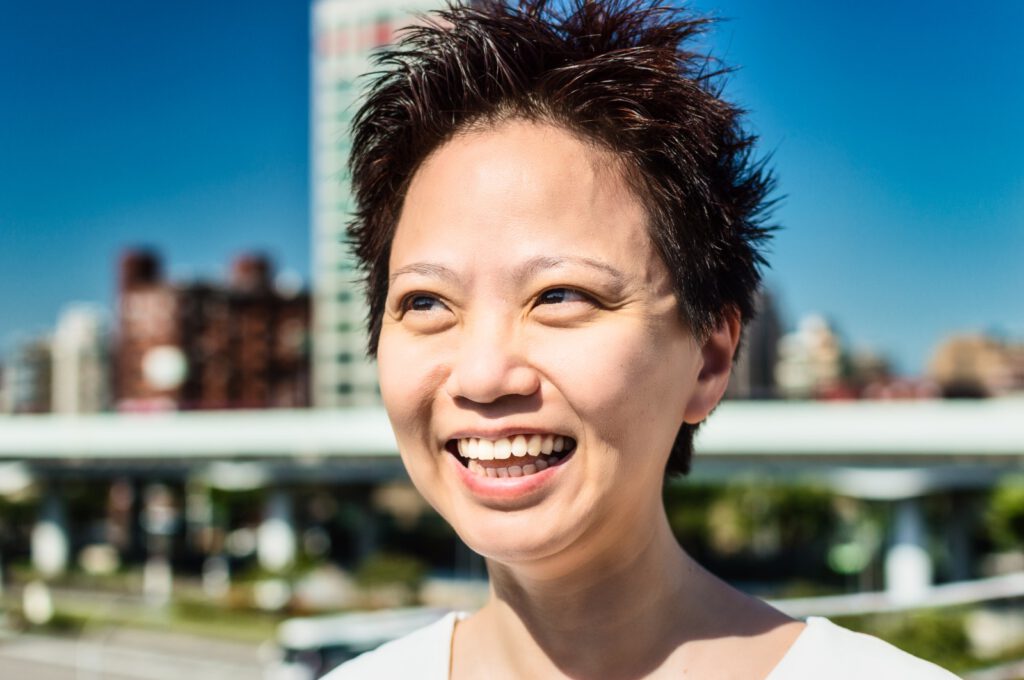
Nai Wen Chang
Freie Szene / Sisyphos, der Flugelefant, United Networks gUG, LAFT e.V.
Nachdem ich zunächst das System kennenlernen musste, bevor ich die notwendigen Veränderungen für mehr Inklusion benennen konnte, möchte ich diesen Prozess für andere mit ähnlichen Erfahrungen verkürzen. Ich glaube an Kunst, die Diversität feiert und die Gesellschaft herausfordert.
Chang Nai Wen ist interdisziplinäre Theatermacherin, Regisseurin und kulturelle Fürsprecherin mit Projekten in Asien, Europa und Nordamerika. Ihre Arbeit thematisiert die Suche nach einem Zuhause, das viele Welten vereint, und fördert Prozesse, die vielfältige Perspektiven sichtbar machen und Dialoge anstoßen. Sie ist Gründerin und künstlerische Leiterin von Sisyphos, der Flugelefant und Mitbegründerin von World Wide Lab, einem internationalen Regiekollektiv für transkulturelle Zusammenarbeit.
Als engagierte Stimme für Diversität, Gleichberechtigung und Inklusion initiierte sie United Networks gUG, ein bundesweites Bündnis für eine gerechtere Kulturlandschaft. Von 2015 bis 2021 war sie im Vorstand von LAFT Berlin aktiv, gründete AGs für Diversität und Antidiskriminierung in Berliner und bundesweiten Verbänden der freien Darstellenden Künste und entwickelte kulturpolitische Empfehlungen auf Landes- und Bundesebene. Als Jurorin u. a. für Fonds Darstellende Künste, flausen+, Chamäleon Theater, Kreativ-Transfer und den Berliner Projektfonds Kulturelle Bildung bringt sie eine Diversitätssensible und intersektionale Perspektive in Förder- und Strukturfragen ein. Als Leiterin von flausen+ global (2020–2023) entwickelte sie nachhaltige Modelle für internationale künstlerische Forschung. Mit Young Mind Lab gestaltet sie seit 2016 langfristige, partizipative Kunstprojekte für benachteiligte junge Menschen. Disziplinen, Sektoren und Communities verbindend, bringt sie künstlerische Vision und strukturelles Know-how zusammen – für eine gerechtere Zukunft der Künste.
Having first learned about the system before being able to identify the changes needed for greater inclusivity, I now seek to shorten this process for others with similar experiences. I believe in art that celebrates diversity and challenges society.
Chang Nai Wen is an interdisciplinary performing arts maker, director, and cultural advocate working across theater, live art, and film in Asia, Europe, and North America. Her work explores the search for a home that embraces many worlds, fostering processes that amplify diverse perspectives and build dialogue. She is founder and artistic director of Sisyphos, der Flugelefant (Berlin) and co-founder of World Wide Lab, an international directors collective for cross-cultural collaboration.
A committed advocate for diversity, equity and inclusion, she initiated United Networks gUG, a Germany-wide alliance for a just cultural landscape. From 2015–2021, she served on the board of LAFT Berlin, co-founded key diversity and anti-discrimination working groups within Berlin’s and Germany’s performing arts associations, and developed policy recommendations at both state and federal levels. As a juror for Fonds Darstellende Künste, flausen+, Chamäleon Theater, Kreativ-Transfer, and the Berlin Project Fund for Cultural Education, she brings a diversity-sensitive and intersectional lens to funding and policy. As Head of flausen+ global (2020–2023), she built sustainable models for international artistic research. Through Young Mind Lab, she has designed long-term participatory artistic projects for underprivileged children and youth since 2016. Bridging disciplines, sectors, and communities, she brings artistic insight and structural expertise to shape a more equitable future for the arts.
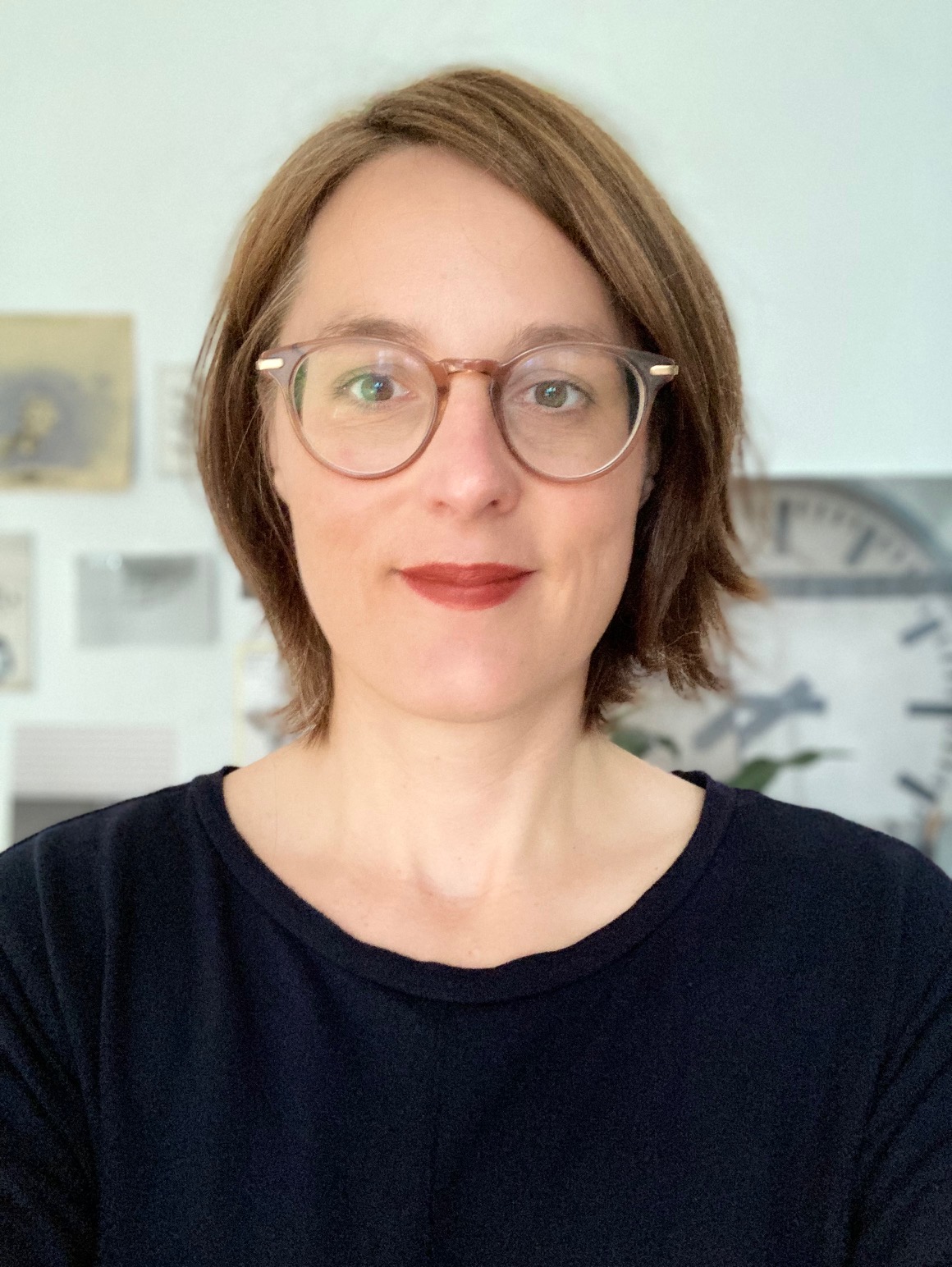
Barbara Greiner
-Partizipative Prozesse als Schlüssel zum Dialog einfordern und anstoßen (Beispiel RRT)
-Aktive Mitgestaltung einfordern bei der Erarbeitung der allgemeinen Verwaltungsvorschrift zur Förderung im Bereich Tanz, darstellende und performative Künste (2028). –Fokus auf ein ineinandergreifendes Fördersystem, das auf nachhaltige Strukturen setzt.
-Visionen trotz der aufgezwungenen Austerität nicht aus den Augen verlieren
Sichtbarmachung der Sparte Tanz (Stichwort: Spartengerechtigkeit)
Vertretung der Interessen der kleinen Strukturen und Häuser und freien Künstler*innen
Barbara Greiner (she/her) has been a member of the management team of Tanzfabrik Berlin BÜHNE since 2022, since 2024 as Co-Managing Director. Between 2007 and 2022, she accompanied numerous artists and independent projects in the fields of dance, choreography and performance in Berlin and internationally as a freelance producer. Between 2017 and 2021, Barbara was on the board of ZTB Zeitgenössischer Tanz Berlin e.V., where she actively accompanied several processes for better funding and working conditions in the Berlin scene, including the participatory process “Runder Tisch Tanz”. She was a co-initiator of Backbone Berlin, a platform that deals with the sustainable promotion of artistic practice and its working structures. Until last year, she was also part of the team behind the Fortuna project space in Neukölln. Barbara also works as a mentor, gives workshops and provides advice for Tanzbüro Berlin and PAP, among others.
- Demand and initiate participatory processes as the key to dialog (example RRT)
- Demand active participation in the development of the general administrative regulation for funding in the field of dance, performing and performing arts (2028) Focus on an interlocking funding system that relies on sustainable structures.
- Not losing sight of visions despite the imposed austerity measures
- Making the dance sector visible (keyword: sectoral justice)
- Representing the interests of small structures and venues and independent artists
Barbara Greiner (she/her) has been a member of the management team of Tanzfabrik Berlin BÜHNE since 2022, since 2024 as Co-Managing Director. Between 2007 and 2022, she accompanied numerous artists and independent projects in the fields of dance, choreography and performance in Berlin and internationally as a freelance producer. Between 2017 and 2021, Barbara was on the board of ZTB Zeitgenössischer Tanz Berlin e.V., where she actively accompanied several processes for better funding and working conditions in the Berlin scene, including the participatory process “Runder Tisch Tanz”. She was a co-initiator of Backbone Berlin, a platform that deals with the sustainable promotion of artistic practice and its working structures. Until last year, she was also part of the team behind the Fortuna project space in Neukölln. Barbara also works as a mentor, gives workshops and provides advice for Tanzbüro Berlin and PAP, among others.
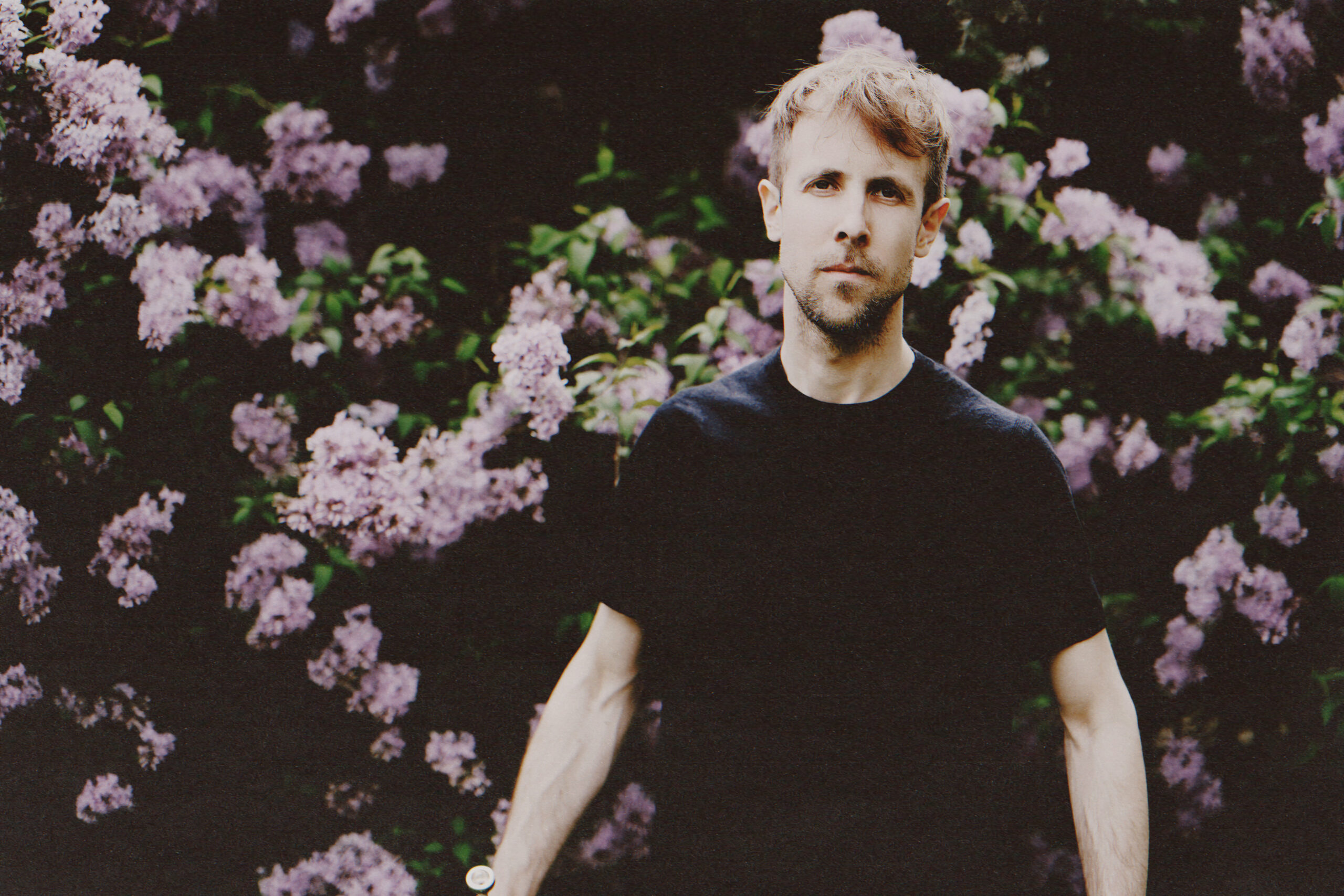
Paul Hübner
inm – initiative neue musik berlin e.V.
Das musikalische Ökosystem Berlins steht im Moment unter besonderem Druck. Die freien Musikschaffenden brauchen eine starke Stimme, die ihrer Bedeutung für die Kulturlandschaft der Stadt gerecht wird — und sensible Ohren für die feinen Zwischentöne des Dialogs, aus dem kulturelle Zukunft wächst.
Paul Hübner zählt als Interpret, Komponist, Performer und Improvisationsmusiker zu den kreativsten Blechbläsern seiner Generation. Er studierte Trompete bei Malte Burba und Mike Svoboda und war 2009/10 Stipendiat der Internationalen Ensemble Modern Akademie in Frankfurt.
Als Trompeter ist er zu Gast bei den wichtigsten Festivals für zeitgenössische Musik, in unterschiedlichen Kammermusik- und Ensembleformationen sowie in seinen eigenen Gruppen MAM.manufaktur für aktuelle musik und hear now berlin.
Ein zentraler Fokus seiner Arbeit ist die intensive Zusammenarbeit mit Komponist:innen und Bühnenkünstler:innen zur Realisation neuer Werke für ein umfangreiches (Blechblas-)Instrumentarium und die Erforschung neuer Klänge – akustischer, inhaltlicher und sozialer Art – in eigenen Kompositionen und Improvisationen. Seit einigen Jahren verbindet ihn darüberhinaus eine enge Zusammenarbeit mit der Musiktheater-Kompanie Nico and the Navigators.
Paul engagiert sich seit 2023 im Vorstand der inm — initiative neue musik Berlin e.V.
Berlin’s musical ecosystem is under particular pressure at the moment. Independent musicians need a strong voice that does justice to their importance for the city’s cultural landscape – and sensitive ears for the subtle nuances of the dialogue from which the cultural future grows.
As an interpreter, composer, performer and improviser, Paul Hübner is one of the most creative brass players of his generation. He studied trumpet with Malte Burba and Mike Svoboda and was a fellow of the International Ensemble Modern Academy in Frankfurt in 2009/10.
As a trumpeter, he maintains a performance schedule at the most important festivals for contemporary music, in various chamber music and ensemble formations as well as in his own groups MAM.manufaktur für aktuelle musik and hear now berlin.
A central focus of his work is the intensive collaboration with composers and stage artists to realize new works for a wide range of (brass) instruments and the exploration of new sounds — acoustic, contextual and social — in his own compositions and improvisations. He has also been working closely with the music theatre company Nico and the Navigators for a number of years.
Paul Hübner has been a board member of the inm — Initiative Neue Musik Berlin since 2023.
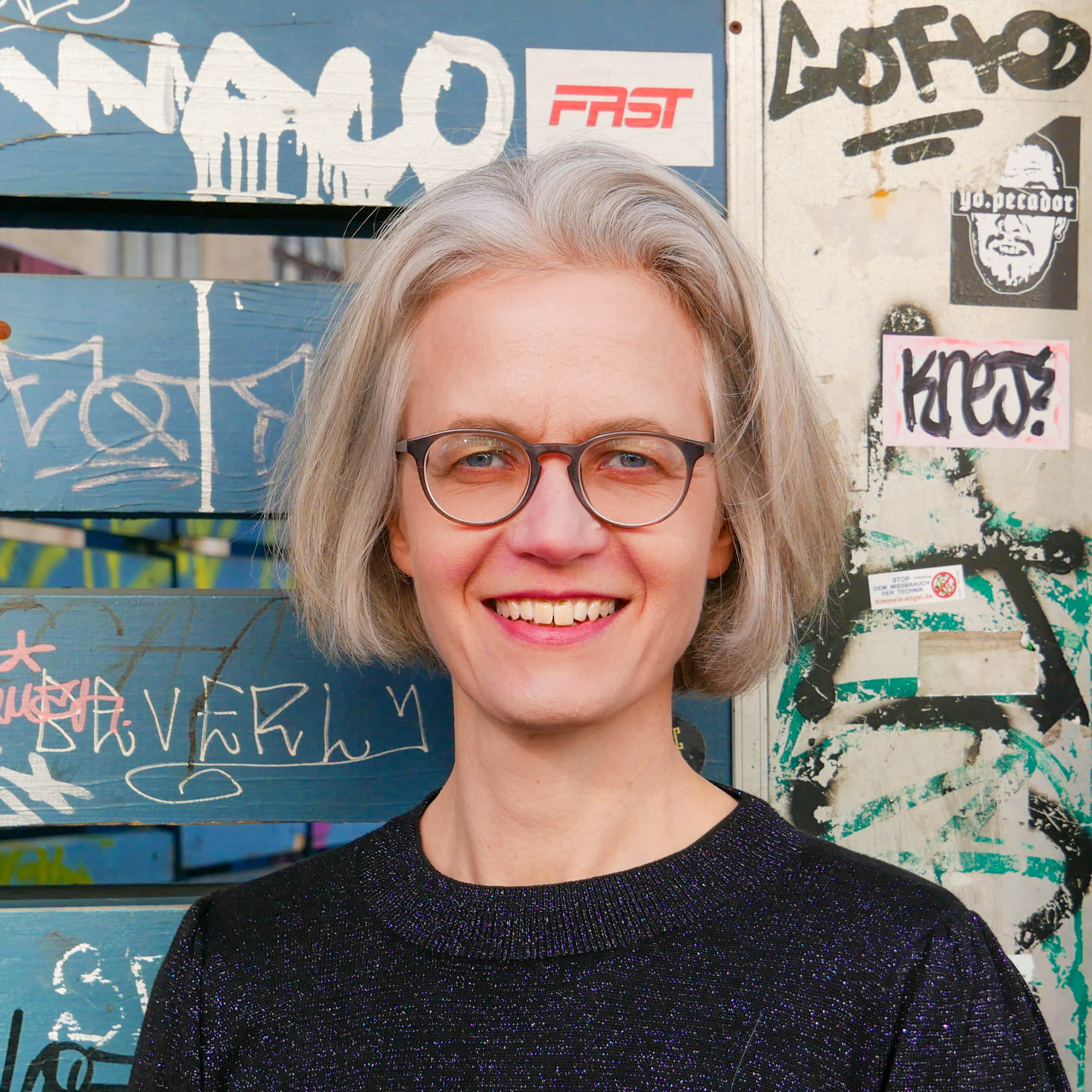
Pirkko Husemann
Pirkko Husemann ist promovierte Theaterwissenschaftlerin und arbeitete über 20 Jahre lang bundesweit in Institutionen der Freien Szene. In Frankfurt/Main war sie im Produktionsbüro des Künstlerhaus Mousonturm tätig, dann als Kuratorin für Tanz am Hebbel am Ufer Berlin und später als Künstlerische Leiterin der Schwankhalle in Bremen.
2020 bis 2024 war sie war sie Vorstand der gemeinnützigen Stiftung Stadtkultur in Berlin, einer Stiftung der HOWOGE Wohnungsbaugesellschaft und in dieser Zeit mit der Reaktivierung einer denkmalgeschützten Kulturimmobilie in Berlin-Karlshorst befasst. Sie entwickelte künstlerische Zwischennutzungen von leerstehenden Gebäuden und konzipierte Projekte der urbanen Praxis in Wohnquartieren am Berliner Stadtrand.
Seit April 2024 ist sie bei der Kulturraum Berlin gGmbH u.a. für die Standortentwicklung der Uferhallen zuständig, wobei sie ihre Erfahrung mit Betriebskonzepten und Betreibermodellen einbringt.
Ich komme aus den Institutionen der Freien Szene und begreife es als meine Aufgabe, ein grundlegendes Missverständnis auszuräumen: dass die Freie Szene lediglich als Nachwuchs der Institutionen dient. Denn die Freie Szene ist nicht per se jung, d.h. sie geht auch nicht zwangsläufig irgendwann in den Institutionen auf.
Pirkko Husemann holds a doctorate in theater studies and has worked for over 20 years in independent arts institutions across Germany. In Frankfurt am Main, she worked in the production office of the Künstlerhaus Mousonturm, then as a curator for Tanz am Hebbel am Ufer Berlin, and later as Artistic Director of the Schwankhalle in Bremen.
From 2020 to 2024, she was a board member of a non-profit real estate foundation in Berlin, during which time she was involved in the reactivation of a listed cultural property in Berlin-Karlshorst. She developed artistic interim uses for vacant buildings and conceived urban practice projects in residential areas on the outskirts of Berlin.
Since April 2024, she has been responsible for, among other things, the site development of the Uferhallen at Kulturraum Berlin gGmbH, contributing her experience with operational concepts and operator models.
I come from the institutions of the independent scene and see it as my task to dispel a fundamental misconception: that the independent scene merely serves as the offspring of the larger institutions. The independent scene is not inherently young, meaning it won’t necessarily be absorbed into the institutions at some point.
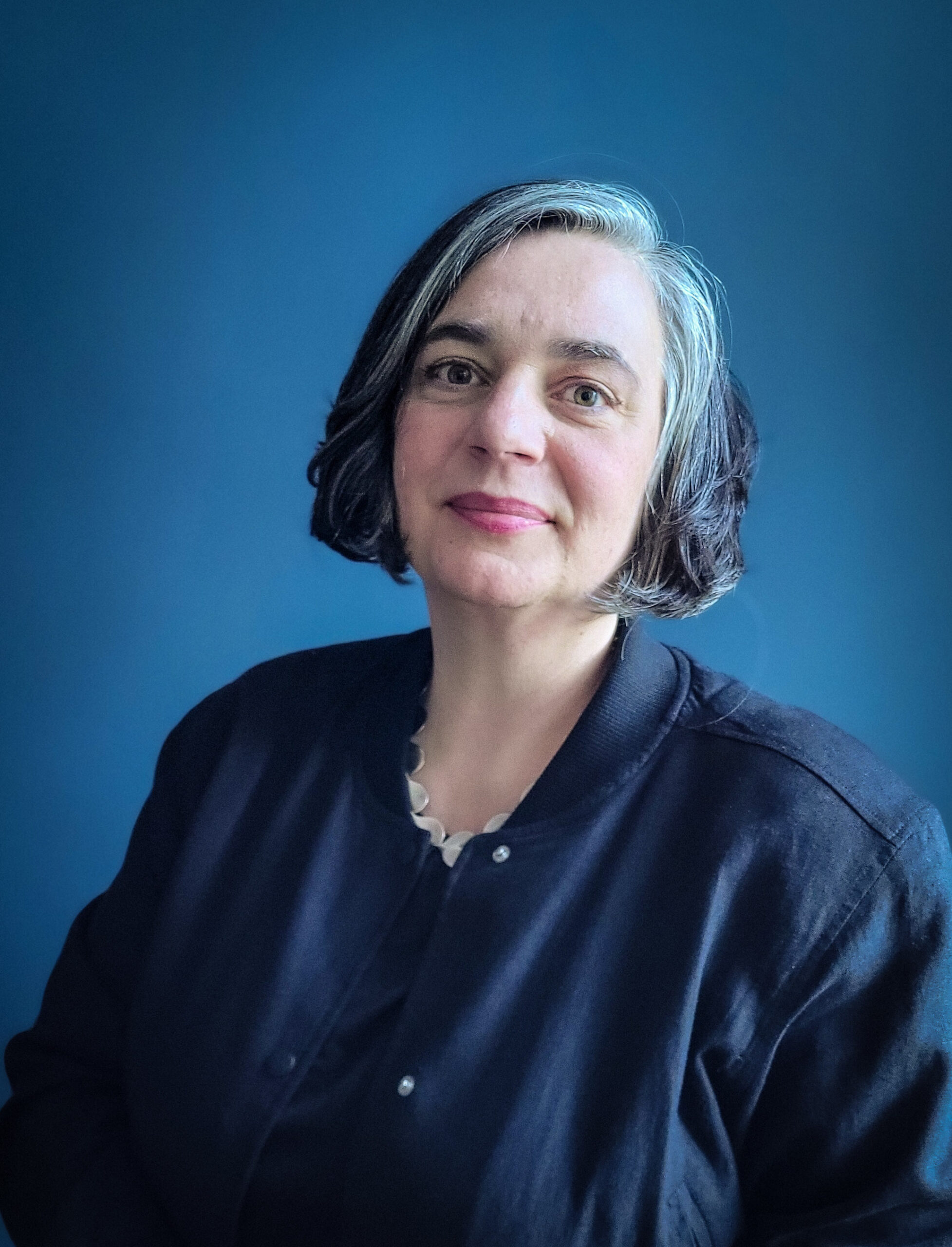
Sabine Kroner
Ich setze mich für eine zukunftsorientierte, vielfältige und gerechte Kulturpolitik ein. Kultur ist essenziell – gerade jetzt! Lasst uns gemeinsam Räume für Kunst, Partizipation und kulturelle Bildung sichern. Dafür bitte ich erneut um Euer Vertrauen und Eure Stimme.
Sabine Kroner (1978 in Freiberg/Sachsen) ist Politologin und Kulturmanagerin. 2013 promovierte sie im Bereich Migrationsforschung an der Georg-August-Universität Göttingen. Seit 2015 ist sie strategische Leiterin und seit 2024 Co-Geschäftsfüherin von Berlin Mondiale, einem Netzwerk, das dezentrale Kulturarbeit und künstlerische Zusammenarbeiten im Kontext Migration, Asyl und Exil ermöglicht, Wissenstransfer und Kulturberatung anbietet und ressortübergreifend sowie transdisziplinär agiert. Seit 2018 ist Sabine Kroner Mitglied und seit 2022 eine der Sprecherinnen im Rat für die Künste Berlin. Sie ist Gründungs- und Vorstandsmitglied des 2022 gegründeten Urbane Praxis e.V. und der 2023 gegründeten AndersMachen eG. 2023 initiierte Sabine Kroner die Jugendkulturinitiative, die darauf abzielt, Berliner Kunst- und Kulturinstitutionen für Jugendliche besser zugänglich zu machen. Seit 2024 ist sie Mitglied im Advisory Board des Z/KU.
I am committed to a future-oriented, diverse and fair cultural policy. Culture is essential – especially now! Let’s work together to secure spaces for art, participation and cultural education. To this end, I am once again asking for your trust and your vote.
research at Georg-August-Universität Göttingen in 2013. Since 2015 she has been the strategic director and since 2024 co-managing director of Berlin Mondiale, a network that facilitates decentralized cultural work and artistic collaborations in the context of migration, asylum and exile, offers knowledge transfer and cultural consulting and operates in an interdisciplinary and transdisciplinary manner. Sabine Kroner has been a member of the Berlin Council for the Arts since 2018 and one of its spokespersons since 2022. She is a founding member and board member of Urbane Praxis e.V., founded in 2022, and AndersMachen eG, founded in 2023. In 2023, Sabine Kroner initiated the Youth Culture Initiative, which aims to make Berlin’s art and cultural institutions more accessible to young people. She has been a member of the Z/KU Advisory Board since 2024.
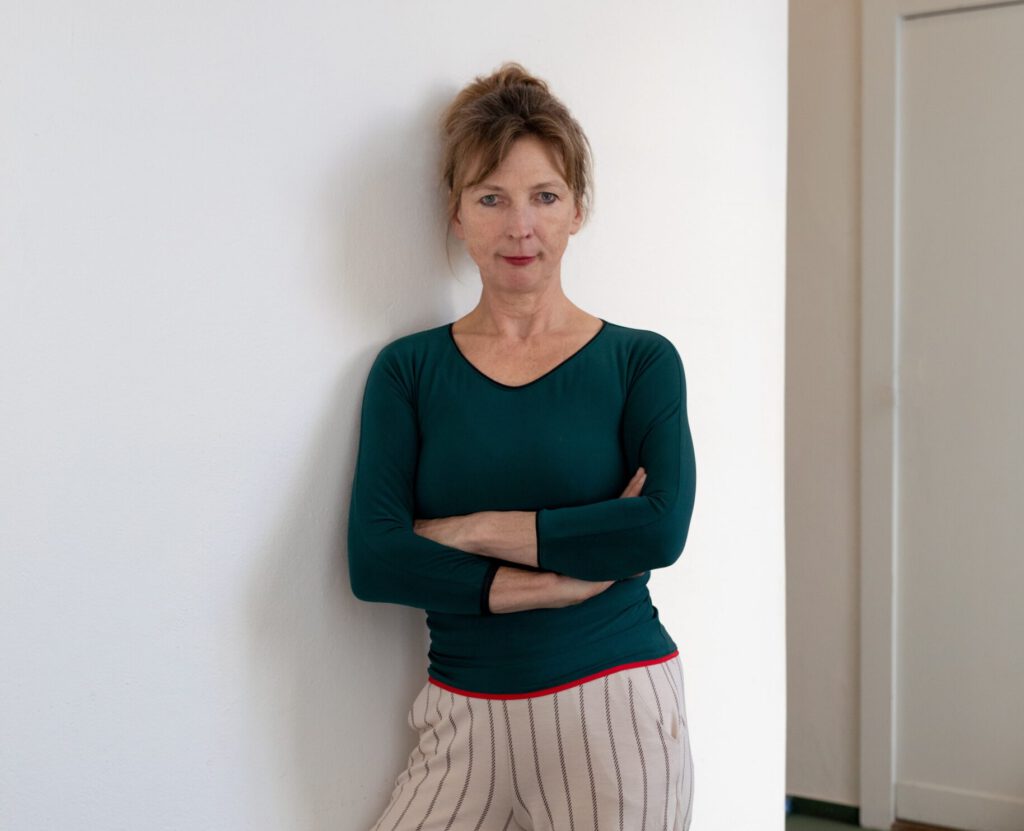
Iris Laufenberg
Ich kandidiere für den Rat für die Künste, weil ich die Verbindung zwischen Kultur und Politik in Berlin stärken möchte. Als Intendantin des Deutschen Theaters weiß ich um die Relevanz, kulturelle Entwicklungen nicht nur innerhalb von Institutionen, sondern im Dialog mit einer sich rasant verändernden Stadtgesellschaft zu gestalten. Mein Fokus liegt auf der besseren Einbindung der Berliner Politik in kulturstrategische Fragen – über Legislaturperioden hinaus. Der Rat kann dabei Impulsgeber und Vermittlungsinstanz sein, wenn wir mit Nachdruck und Weitsicht sprechen. Ich will meine Erfahrung, mein Netzwerk und meine Leidenschaft für öffentlich getragene Kultur einbringen – vielfältig, zugänglich und zukunftsfähig
Iris Laufenberg –
Intendantin, Festivalmanagerin und Dramaturgin
Iris Laufenberg studierte Angewandte Theaterwissenschaft in Gießen. Seit ihrer Zeit als künstlerische Leiterin des Festivals Bonner Biennale liegt ein inhaltlicher Schwerpunkt ihrer Arbeit auf der neuen Dramatik, den sie sowohl in ihrer 10-jährigen Tätigkeit als Leiterin des Theatertreffens der Berliner Festspiele u. a. mit der Profilierung der Autorinnenförderung beim Stückemarkt, als auch anschließend als Schauspieldirektorin am Konzert Theater Bern ausbaute. Am Schauspielhaus Graz gründete Iris Laufenberg mit Beginn ihrer Intendanz im Jahr 2015 das jährlich stattfindende Internationale Dramatiker|innenfestival Graz, innerhalb dessen neben der zeitgenössischen Dramatik auch die grenzübergreifende, inhaltliche Verständigung von Theaterschaffenden sowie junge Talente gefördert werden. Iris Laufenbergs Fokus auf den inhaltlichen und ästhetischen Möglichkeitsraum des öffentlichen Ortes (Stadt-)Theater zwischen lokaler Verankerung und globaler Notwendigkeit spiegelt sich in interdisziplinären und genreübergreifenden Projekten wider: So produzierte sie einen mit Einladungen zu Filmfestivals gekrönten Spielfilm, bezieht beispielsweise die Kunst des Puppenspiels kontinuierlich in den Spielplan ein und gründete und etablierte am Schauspielhaus Graz die Bürgerinnenbühne.
Iris Laufenberg übernimmt regelmäßig Jury-Tätigkeiten und Mentorinnenschaften und engagiert sich national wie europaweit in der Interessenvertretung von Theater und in der Weiterentwicklung der Kunstform, so ist sie u.a. Vorstandsmitglied und Vizepräsidentin der ETC (European Theatre Convention) und gründete gemeinsam mit den Intendantinnen der Bundesländer-Theater die Österreichische Intendantinnengruppe.
Iris Laufenberg ist Intendantin des Deutschen Theater Berlin, das sie ab 2023.2024 leiten wird.
I am running for the Arts Council because I want to strengthen the link between culture and politics in Berlin. As the director of the Deutsches Theater, I am aware of the importance of shaping cultural developments not only within institutions, but also in dialogue with a rapidly changing urban society. My focus is on improving the involvement of Berlin’s politicians in strategic cultural issues – beyond legislative periods. The Council can act as a catalyst and mediator if we speak out with vigour and foresight. I want to bring my experience, my network and my passion for publicly funded culture – diverse, accessible and sustainable.
Iris Laufenberg – Artistic Director, Festival Manager, and Dramaturg
Iris Laufenberg studied Applied Theatre Studies in Giessen. Since her time as Artistic Director of the Bonn Biennale, a key focus of her work has been on contemporary drama, which she expanded upon during her 10 years as Director of the Theatertreffen of the Berliner Festspiele, including raising the profile of author support at the Stückemarkt, and subsequently as Drama Director at the Konzert Theater Bern. At the Schauspielhaus Graz, Iris Laufenberg founded the annual International Dramatists‘ Festival Graz in 2015, which, in addition to contemporary drama, promotes cross-border, thematic dialogue between theater professionals and young talent. Iris Laufenberg’s focus on the content-related and aesthetic possibilities of the public space of (urban) theater, between local roots and global necessity, is reflected in interdisciplinary and cross-genre projects: For example, she produced a feature film that garnered invitations to film festivals, continuously incorporates the art of puppetry into the program, and founded and established the Citizens‘ Theater at the Schauspielhaus Graz.
Iris Laufenberg regularly serves on juries and mentors and is involved nationally and across Europe in representing theater interests and advancing the art form. Among other things, she is a board member and vice president of the ETC (European Theatre Convention) and founded the Austrian Artistic Directors‘ Group together with the artistic directors of the state theaters.
Iris Laufenberg is the artistic director of the Deutsches Theater Berlin, which she will lead from 2023 to 2024.
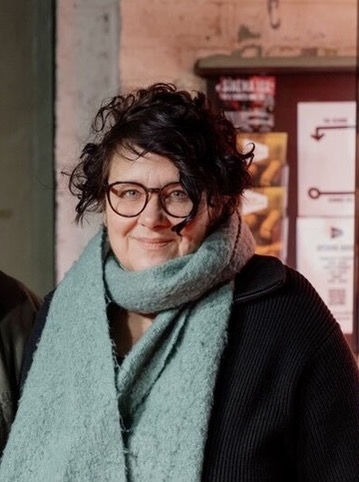
Malve Lippmann
Mit der Arbeit der letzten Jahre haben wir im SİNEMA TRANSTOPIA einen Diskurs um eine transnationale und alternative Kinopraxis entworfen und bundesweit sowie international zahlreiche Institutionen und Projekte inspiriert. Sinema Transtopia ist ein Begegnungsort für diverse Communities – ein co-(un)learning und co-creating space, an dem im gemeinsamen Austausch Vorstellungen davon entwickelt werden können, wie wir zusammenleben wollen.
Das trifft aber nicht nur auf SİNEMA TRANSTOPIA zu, sondern viele Berliner Künstlerinnen, Kulturrorte oder -Initiativen und -Initiativen öffnen durch ihre Angebote und Veranstaltungen diese Insprationsräume, an denen Menschen aus unterschiedlichen sozialen Gruppen ins Gespräch kommen und an denen Demokratie, Teilhabe und Diskussionskultur erprobt werden und die weit über die Grenzen Berlins hinaus wirken. Sie schaffen belastabre transnationale Allianzen. Berlin verdankt die internationale Anerkennung seinen Kulturakterinnen. Die Berliner Kulturrräume sind Orte der Wissensproduktion, der kulturellen Bildung, der Vernetzung, des offenen Diskurs und sichern eine plurale Erinnerungskultur – und nicht zuletzt bieten sie auch ein Zuhause für die Berliner*innen.
Durch die aktuellen Einsparungen ist die Berliner Kulturlandschaft massiv gefährdet.
Das müssen wir verhindern!
Malve Lippmann ist Künstlerin, Kuratorin und Kulturmanagerin. Sie ist Mitbegründerin und künstlerische Leiterin von bi’bak und SİNEMA TRANSTOPIA in Berlin und zeichnete für Filmprogramme, Veranstaltungsreihen und Ausstellungen verantwortlich, darunter das internationale Symposium Cinema of Commoning (2022+2024) und das dokumentarische Ausstellungsprojekt Bitter Things – Narratives and Memories of Transnational Families (2018). Vor der Gründung von bi’bak 2014 arbeitete sie als freiberufliche Bühnenbildnerin und Künstlerin schuf sie international Bühnenbilder für zahlreiche Performances, Opern- und Schauspielproduktionen. Lippmann lebt und arbeitet in Berlin.
Mit der Frage: “Wie lässt sich ein neues Kino in der transnationalen Gesellschaft gemeinsam gestalten?” starteten Malve Lippmann und Can Sungu von bi’bak 2020 das Kino-Experiment SİNEMA TRANSTOPIA im Haus der Statistik am Alexanderplatz, das Kino als sozialen Diskursraum und als Ort des Austauschs und der Solidarität versteht. An seinem neuen Standort in Berlin-Wedding wird SİNEMA TRANSTOPIA als transnationaler Raum für Filmkultur, Kunst, Wissen und Nachbarschaft verstetigt und schlägt eine Brücke zwischen Stadtraum und Film als kultureller Praxis. Hier wird ein Ort geschaffen, der urbane und transnationale Selbstverständlichkeit lebt, der Zugänge schafft, zur Diskussion anregt, weiterbildet, bewegt, provoziert und ermutigt.
Mit „Transtopie“ bezeichnet der Migrationsforscher Erol Yıldız Räume, „in denen grenzüberschreitende Bindungen und Verbindungen zusammenlaufen, neu interpretiert werden und sich zu Alltagskontexten verdichten.“ Daran anschließend verknüpft SİNEMA TRANSTOPIA nahe und entfernte Orte sowie ihre Narrative, Vergangenheiten, Gegenwarten und Zukünfte. Das Kino wird zu einem Treffpunkt, an dem Menschen nicht nur der Filme wegen zusammenkommen. Vielmehr entwickelt es sich zu einem lebendigen Diskursraum, einem Raum des Zusammenlebens, Arbeitens und Lernens. SİNEMA TRANSTOPIA steht also für ein Kino, das sich als Ort gesellschaftlicher Öffentlichkeit versteht, das sich zugleich einer lokalen und einer internationalen Gemeinschaft verpflichtet sieht, das filmhistorische als erinnerungskulturelle Arbeit betrachtet und sich für die Vielfalt der Filmkultur und Filmkunst einsetzt.
Malve Lippmann is an artist, curator, and cultural manager. She is co-founder and artistic director of bi‘bak and SİNEMA TRANSTOPIA in Berlin where she was responsible for various programs, events and exhibitions such as the international symposium Cinema of Commoning (2022+2024) and the documentary exhibition project Bitter Things – Narratives and Memories of Transnational Families (2018). Before 2014 she has been internationally responsible for the design of numerous performances, opera- and theater productions as a freelance stage designer and artist . Lippmann lives and works in Berlin.
With the question: “How can a new cinema be collectively shaped in a transnational society?” Malve Lippmann and Can Sungu from bi’bak launched the cinema experiment SİNEMA TRANSTOPIA in 2020 at Haus der Statistik on Alexanderplatz, envisioning cinema as a space for social discourse, exchange, and solidarity. At its new location in Berlin-Wedding, SİNEMA TRANSTOPIA establishes itself as a transnational space for film culture, art, knowledge and community, creating a bridge between urban space and film as cultural practice. Here a place is created where urbanity and transnationalism coexist, a place that enables access, stimulates discussion, educates, moves, provokes and encourages.
„Transtopia“ is the term used by migration researcher Erol Yıldız to describe spaces “where transnational ties and connections converge, are reinterpreted, and condense into everyday contexts.” Following on from this, SİNEMA TRANSTOPIA links geographies both near and far, taking into consideration their narratives, pasts, presents and futures. Cinema here becomes a meeting place where people come together not only to witness film, but to experience a space of lively discourse, of living, working and learning together. SİNEMA TRANSTOPIA thus stands for a cinema that sees itself as a social place simultaneously committed to local and international communities, one that regards film-historical work as the work of cultural remembrance and that is dedicated to a diversity of film culture and film art.
In recent years, with SİNEMA TRANSTOPIA, we have developed a discourse around a transnational and alternative cinema practice, and inspired numerous institutions and projects both nationally and internationally. SİNEMA TRANSTOPIA is a space of encounter for diverse communities – a co-(un)learning and co-creating space where shared ideas can emerge about how we want to live together.
But this applies not only to SİNEMA TRANSTOPIA. Many Berlin-based artists, cultural spaces, and initiatives open up these spaces of inspiration through their programs and events – spaces where people from different social backgrounds come together, where democracy, participation, and a culture of discussion are explored and practiced, and whose influence reaches far beyond Berlin’s borders. They are building resilient transnational alliances. Berlin owes its international reputation to its cultural actors. The city’s cultural spaces are places of innovative knowledge production, cultural education, networking, and open discourse. They safeguard a plural culture of remembrance – and last but not least, they offer a home to the people of Berlin.
Due to current budget cuts, Berlin’s cultural landscape is under serious threat.
We must stop this!
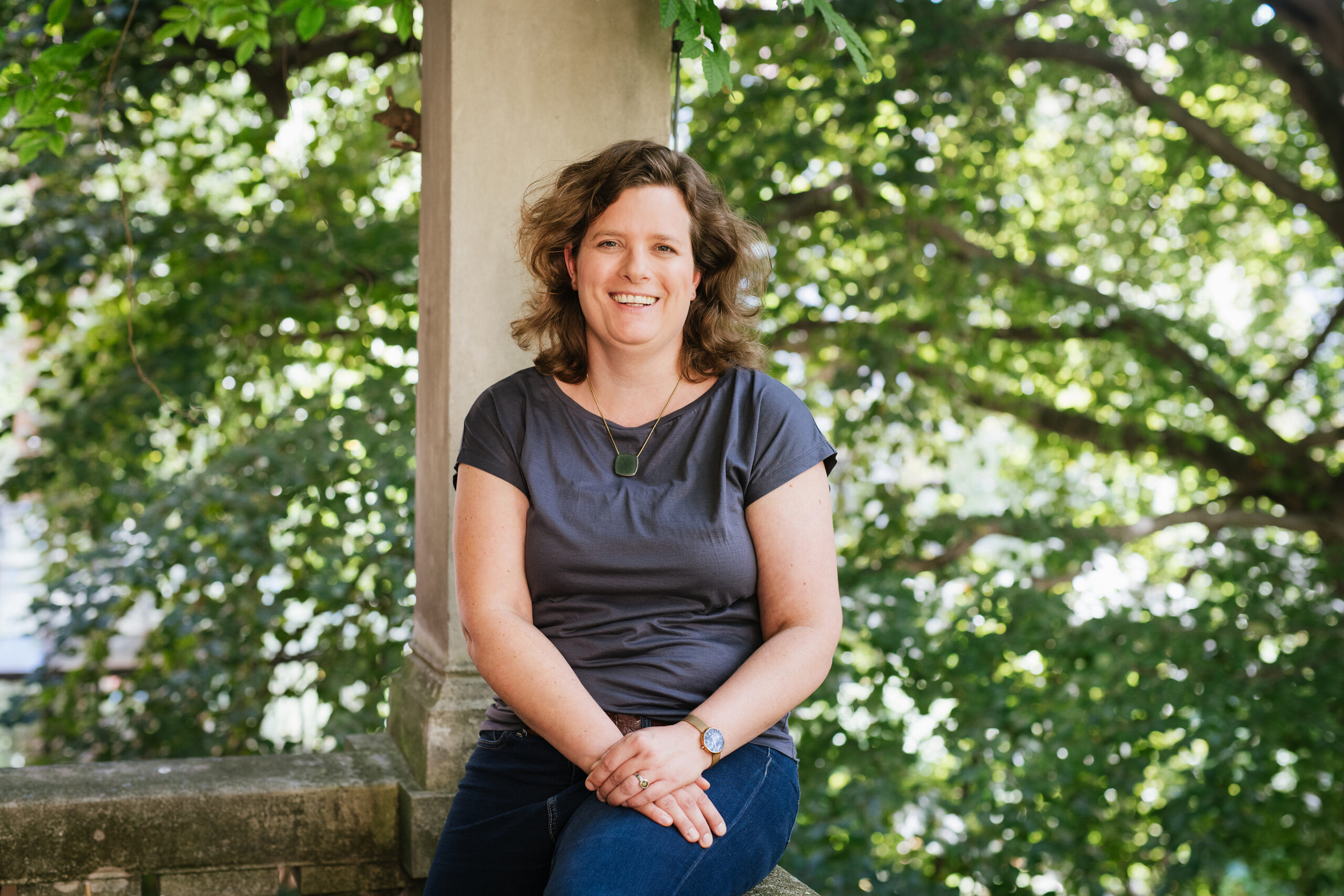
Sonja Longolius
Sonja Longolius, geboren 1978 in Gießen, aufgewachsen in Hamburg, studierte Amerikanistik und Kunstgeschichte in Hamburg und an der Freien Universität Berlin. 2015 promovierte sie dort über Paul Auster, Candice Breitz, Sophie Calle und Jonathan Safran Foer. Sie erlernte ihr Handwerk als Ausstellungsmacherin u.a. im Museum of Modern Art New York und in der Stiftung Neue Synagoge Berlin und kuratierte verschiedene Ausstellungen, z.B. über Videokunst. 2016 war sie Mitbegründerin des medienkunst e.V. Seit 2018 leitet sie zusammen mit Janika Gelinek das Literaturhaus Berlin.
Ich möchte mich im Rat für die Künste für die vielfältige Literatur Berlins – von den Literaturhäusern, den internationalen Literaturfestivals und Stipendienprogrammen und der freien Literaturszene – einsetzen und hier die Interessen der Literaturveranstalter:innen, der Autor:innen, der Übersetzer:innen und der Literaturschaffenden vertreten. Literatur braucht Raum, zum Schreiben, Lesen, Diskutieren und zur Begegnung. Literatur braucht Geld um zu Entstehen und vor Publikum zum Erblühen zu kommen. Dafür möchte ich mich einsetzen. Danke für deine Stimme! #BerlinIstKultur
I would like to advocate for Berlin’s diverse literary landscape within the Council for the Arts – from literary houses and international literature festivals to residency programs and the independent literary scene. My aim is to represent the interests of literature organizers, authors, translators, and all literary professionals.
Literature needs space – for writing, reading, discussion, and exchange. Literature needs funding – to come into being and to flourish in front of an audience.That’s what I want to stand up for. Thank you for your vote! #BerlinIstKultur
Sonja Longolius was born in 1978 in Gießen and grew up in Hamburg. She studied American Studies and Art History in Hamburg and at the Free University of Berlin. In 2015, she earned her doctorate with a dissertation on Paul Auster, Sophie Calle, Candice Breitz and Jonathan Safran Foer. She gained professional experience at institutions like the Museum of Modern Art in New York and the New Synagogue Foundation Berlin. She curated several exhibitions, particularly in the field of video art, and co-founded the medienkunst e.V. in 2016. Since 2018, she has been co-directing the Literaturhaus Berlin together with Janika Gelinek.
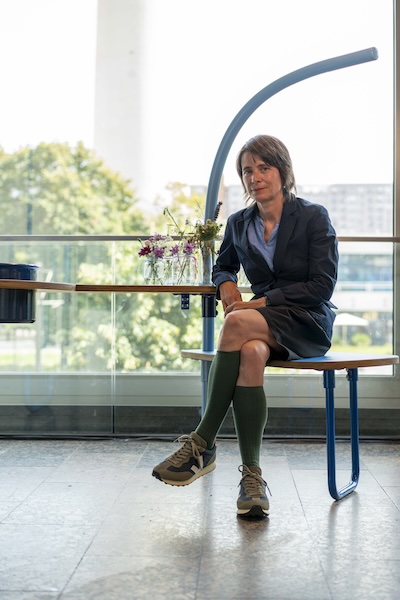
Annette Maechtel
neue Gesellschaft für bildende Kunst
Aus der nGbK bringe ich Erfahrungen zwischen institutioneller und freiberuflicher Praxis im Kunstfeld mit. Eine moderierende Schnittstelle erscheint mir wichtig, um Ressourcen besser zu teilen und Forderungen gemeinsam zu entwickeln. Kulturpolitik bedeutet für mich vor allem Infrastrukturpolitik! Hierfür bringe ich kulturpolitische Erfahrung und historisches Wissen über Förderpolitik in Berlin mit. Im Rat bin ich seit 2020 und vertrete den Bereich Bildende Kunst. Meine Themen waren in den letzten fünf Jahren als Mitglied des RfdK die Forderungen nach kultureller Infrastruktur/Stadtpolititk (u.a. Molkenmarkt, Streichung der Pavillons in der KMA) Förderpolitik für Urbane Praxis, Kritik an der Antisemitismusklausel und die Weiterentwicklung von Förderstrukturen und -instrumenten, um Projektförderungen in Zeiten von Kürzungen mehr abzusichern.
Annette Maechel ist seit 2020 Geschäftsführerin der nGbK und hat die Überführung des Vereins in die institutionelle Förderung und seinen Standortwechsel von Kreuzberg nach Mitte 2022 verantwortet. Sie hat langjährige Berufserfahrung als freie Kuratorin. Mehrere Ihrer Ausstellungs- und Forschungsprojekte beschäftigten sich mit Berlin als einem politischen und diskursiven Raum. 2015-2020 hat sie gemeinsam mit Heimo Lattner „ibid. Szenische Lesungen aus Dokumenten der Berliner Stadt- und Kulturpolitik“ durchgeführt. 2017 bis 2019 war Sie wiss. Mitarbiterin in dem Einstein-Forschungsvorhaben „Autonomie und Funktionalisierung“ an der UdK Berlin. 2018 schloss Sie ihre Dissertation an der HGB Leipzig am Institut für Theorie ab. 2020 erschien diese bei b_books unter dem Titel „Das Temporäre poltiisch denken. Raumproduktion im Berlin der frühen 1990er Jahre“. 2011-2015 war sie aktives Mitglied der kulturpolitischen Initiative Haben und Brauchen. 2020 wurde Annette Maechtel als kooptiertes Mitglied in den Rat aufgenommen. Februar 2025 vertrat sie beim Kulturdialog zu den Kürzungen den Bereich Bildende Kunst. Ihre Schwerpunkte sind Raumpolitik/kulturelle Infrastrukturen/Liegenschaftspolitik, Schnittstelle Institutionen/Freie Szene, Kunstfreiheit.
From the NGbK I bring experience from both institutional and freelance practice in the arts. I believe that a moderating interface is important to better share resources and develop demands together. For me, cultural policy is first and foremost infrastructure policy! I bring cultural policy experience and historical knowledge of funding policy in Berlin. I have been on the Council since 2020 and represent the visual arts. In the past five years as a member of the RfdK, I have focused on demands for cultural infrastructure/urban policy (including the Molkenmarkt, the cancellation of the pavilions in the KMA), funding policy for urban practice, criticism of the anti-Semitism clause, and the further development of funding structures and instruments to better secure project funding in times of cutbacks.
Annette Maechel has been nGbK’s managing director since 2020 and is responsible for the organisation’s transition to institutional funding and its move from Kreuzberg to Mitte in 2022. She has many years of experience as a freelance curator. Several of her exhibition and research projects have focused on Berlin as a political and discursive space. From 2015 to 2020 she was working with Heimo Lattner on ‚ibid. Scenic Readings from Documents of Berlin City and Cultural Politics‘. From 2017 to 2019, she was a research assistant in the Einstein research project ‚Autonomy and Functionalisation‘ at the Berlin University of the Arts. In 2018, she completed her dissertation at the HGB Leipzig at the Institute for Theory. In 2020 it was published by b_books under the title ‚Das Temporäre politisch denken. Raumproduktion im Berlin der frühen 1990er Jahre‘ (Thinking the Temporary Politically: Space Production in Berlin of the Early 1990s). From 2011 to 2015 she was an active member of the cultural policy initiative Haben und Brauchen. In 2020 Annette Maechtel became a co-opted member of the Council. In February 2025, she represented the visual arts in the cultural dialogue on budget cuts. Her focus is on spatial policy/cultural infrastructure/real estate policy, the interface between institutions and the independent scene, and artistic freedom.
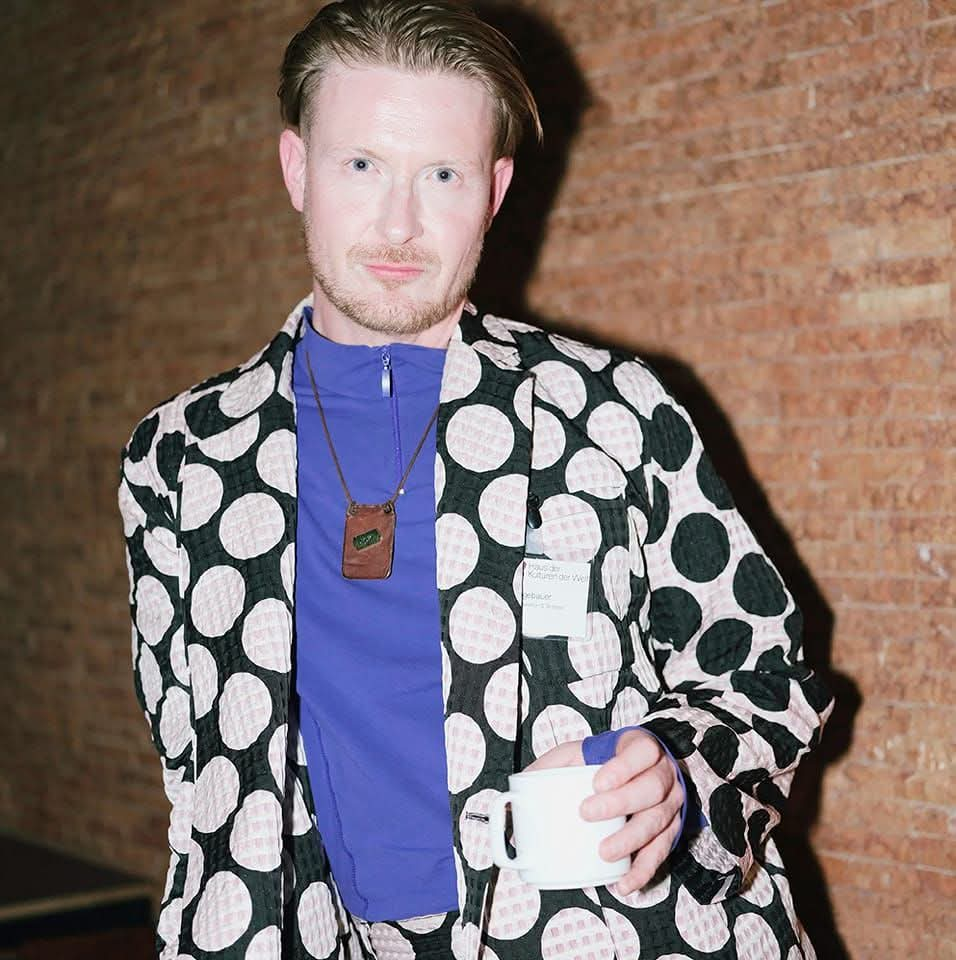
Daniel Neugebauer
Ich möchte gern weiter dazu beitragen, ein kulturpolitisches Korrektiv zu orchestrieren. Kulturpolitik wird zunehmend zur top-down Setzung statt zu helfen, kulturelle Ökosysteme zu pflegen und neue zu entwickeln. Die letzten Jahre als Co-Sprecher des Rates waren für mich persönlich bereichernd und ich würde gern in einer Kombination aus alten und vielen neuen Mitgliedern weiterhin für einen starken Rat arbeiten
Daniel Neugebauer arbeitet als Kurator (Kulturelle Bildung & Strategische Partnerschaften) am Hus der Kulturen der Welt (HKW). Er ist Pädagoge, Kurator und Connected World Senior Fellow an der VU Amsterdam, 2022/23. Er war Herausgeber von vier Bänden der HKW-Reihe Das Neue Alphabet (2020–23) über Körperpolitiken und Poetik. Zuvor war er unter anderem Bildungskoordinator des rumänischen Pavillons auf der 59. Biennale von Venedig, 2022; Leiter für Kommunikation und kulturelle Bildung am HKW, 2018–22; und Leiter für Marketing, Vermittlung und Fundraising am Van Abbemuseum in Eindhoven, 2012–18.
I would like to continue to help orchestrate a cultural policy corrective. Cultural policy is increasingly becoming top-down instead of helping to nurture cultural ecosystems and develop new ones. The last few years as co-spokesperson of the Raes have been personally enriching for me and I would like to continue working for a strong council with a combination of old and many new members.
Daniel Neugebauer works as a curator (Cultural Education & Strategic Partnerships) at Haus der Kulturen der Welt (HKW). He is an educator and curator and Connected World Senior Fellow at the VU Amsterdam, 2022–23. He was editor of four volumes in HKW’s series Das Neue Alphabet (2020–23) on body politics and poetics. Previous positions include: education coordinator of the Romanian Pavilion, 59th Venice Biennale, 2022; head of communication and cultural education at HKW, 2018–22; and head of marketing, mediation, and fundraising at Van Abbemuseum, Eindhoven, 2012–18.
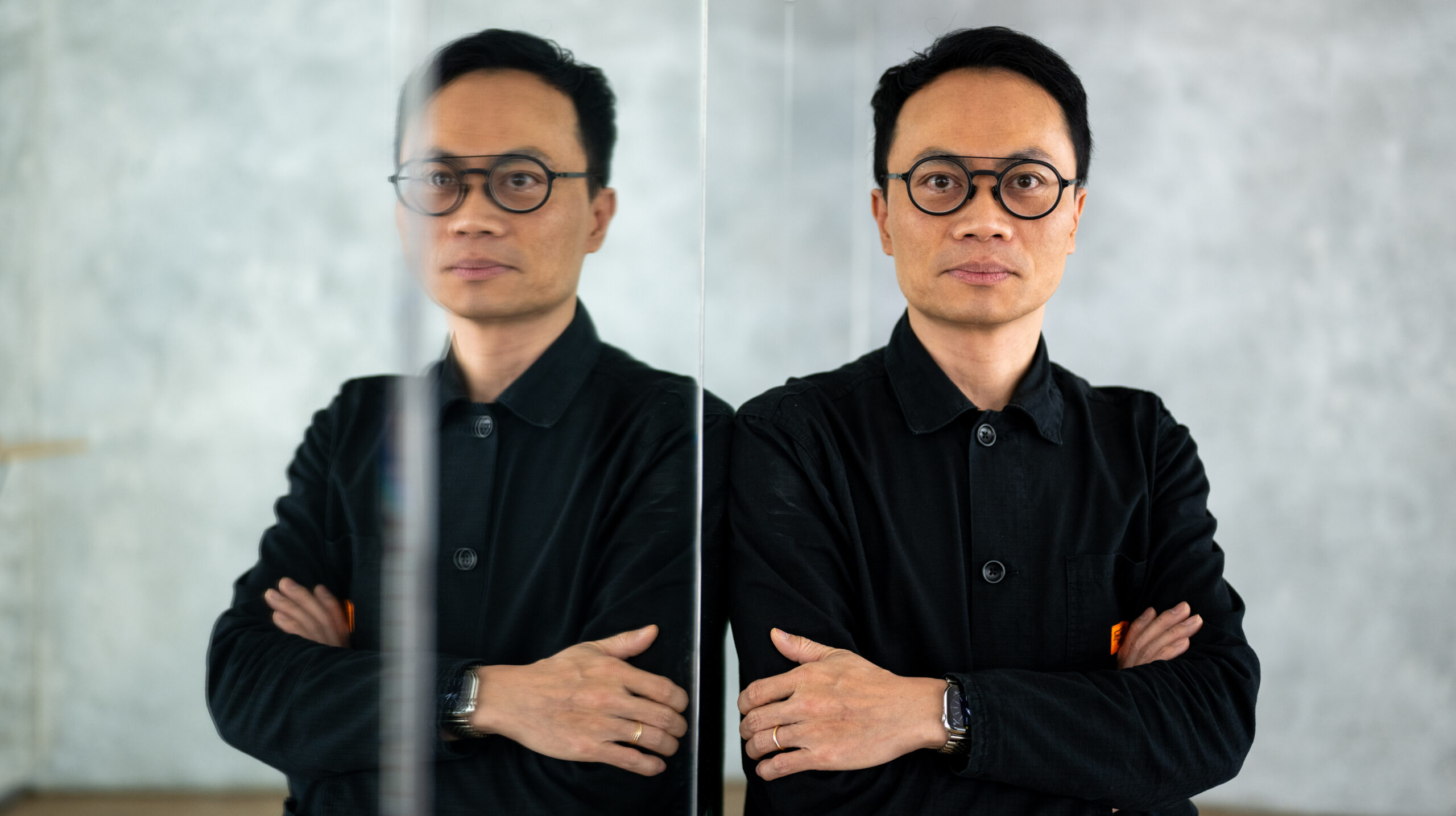
Anh-Linh Ngo
Angesichts zunehmender Angriffe auf die Künste ist es ein historisches Versagen der Regierungspolitik, die kulturelle Infrastruktur als Fundament der offenen Gesellschaft durch Kürzungen zu schwächen. Daher: Solidarität unter Kunstschaffenden und Selbstbewusstsein gegenüber Politik und Gesellschaft!
Anh-Linh Ngo (*1974) ist Architekturtheoretiker, Kurator und Chefredakteur von ARCH+. Er initiiert und kuratiert gemeinsam mit einer Vielzahl von Kooperationspartner:innen regelmäßig Ausstellungs- und Forschungsprojekte wie projekt bauhaus (2015–2019), An Atlas of Commoning (seit 2018), 1989–2019 Politik des Raums im Neuen Berlin (2019) Cohabitation (2021) und The Great Repair (2023/24). Mit ARCH+ prägt er den raumpolitischen Diskurs entscheidend mit. Er ist aktuell Mitglied des Kuratoriums der IBA 2027 StadtRegion Stuttgart und der Akademie Schloss Solitude sowie Beiratsmitglied des Goethe-Instituts. Er war Co-Kurator des Deutschen Pavillons auf der 18. Architekturbiennale in Venedig 2023. Seit 2021 ist er Mitglied, seit Mai 2024 Vizepräsident der Akademie der Künste, Berlin.
In the face of growing attacks on the arts, it is a historic failure of government policy to undermine cultural infrastructure—the foundation of an open society—through funding cuts. Therefore: solidarity among artists and confidence in dealing with politics and society!
Anh-Linh Ngo (*1974) is an architecture theorist, curator, and editor-in-chief of ARCH+. He regularly initiates and curates, with a wide ranges of partners, exhibition and research projects, such as Projekt Bauhaus (2015–2019), An Atlas of Commoning (since 2018), 1989–2019: Politics of Space in the New Berlin (2019), Cohabitation (2021), and The Great Repair (2023/24). With ARCH+, he plays a key role in shaping the spatial political discourse. He is currently a member of the advisory board of the IBA 2027 StadtRegion Stuttgart and the Akademie Schloss Solitude, as well as a board member of the Goethe-Institut. He was a co-curator of the German Pavilion at the 18th Architecture Biennale in Venice in 2023. Since 2021, he has been a member of the Academy of Arts, Berlin, and will become its Vice President in May 2024.
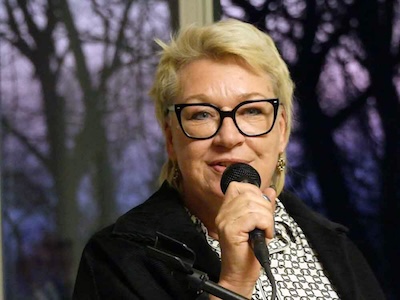
Katrin Scheel
Arbeitskreis Kommunale Galerien Berlin, Schloss Biesdorf
Meine Motivation sehe ich in der Fortsetzung meines langjährigen Engagements für die kulturelle Infrastruktur Berlins und damit verbunden das Engagement für die Künstlerinnen und Künstler unserer Stadt. Meine Erfahrungen im oft komplizierten Agieren zwischen Verwaltung, Politik und Kulturarbeit würde ich gern in den Rat für die Künste einbringen.
Vita Karin Scheel
Kuratorin von Ausstellungsprojekten zeitgenössischer Kunst
Kuratorin von Kunstprojekten im öffentlichen Raum und interdisziplinären Veranstaltungen
geboren in Rostock
1982 – 88 Studium an der Humboldt Universität Berlin(Kunstpädagogik und Germanistik)
1989/90 Studium Philosophie an der Humboldt Universität Berlin
1994 bis 2002 Leitung der kommunalen Galerie HO
seit 1995 Geschäftsführung der Kommission für Kunst am Bau und Kunst im öffentlichen Raum in Marzahn-Hellersdorf
2008 bis 2017 Leitung der kommunalen Galerie M
Seit 2008 Aufbau eines Atelierprogrammes in Marzahn-Hellersdorf
2013 Gründungsmitglied des AK KGB (Arbeitskreis der kommunalen Galerien in Berlin)
seit 2015 Sprecherin des Arbeitskreises Kommunale Galerien Berlin
2016 – 2018 Mitglied und Geschäftsführung Beirat Schloss Biesdorf
seit 2018 Künstlerische Leitung Schloss Biesdorf
I see my motivation in continuing my long-standing commitment to Berlin’s cultural infrastructure and the associated commitment to the artists of our city. I would like to contribute my experience in the often complicated interaction between administration, politics and cultural work to the Council for the Arts.
Vita Karin Scheel
Curator of contemporary art exhibition projects
Curator of art projects in public spaces and interdisciplinary events
Born in Rostock
1982 – 88 Studied at Humboldt University Berlin (art education and German studies)
1989/90 Studied Philosophy at Humboldt University Berlin
1994 to 2002 Head of the municipal gallery HO
Since 1995 Management of the commission for public art in Marzahn-Hellersdorf
2008 to 2017 Head of the municipal gallery M
Since 2008 Development of a studio program in Marzahn-Hellersdorf
2013 Founding member of AK KGB (working group of municipal galleries in Berlin)
since 2015 Representative for the Berlin Municipal Galleries Working Group
2016 – 2018 Member and Managing Director of the Schloss Biesdorf Advisory Board
since 2018 Artistic Director of Schloss Biesdorf
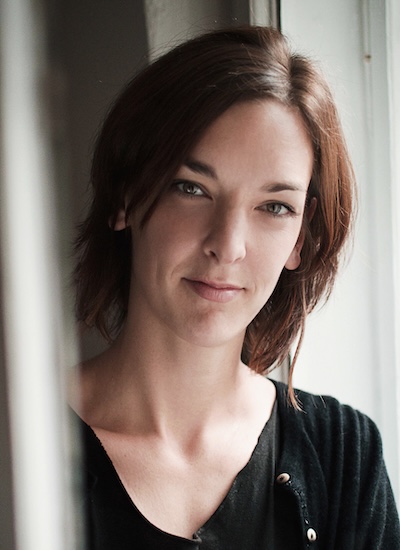
Anne Schneider
Freie Regisseurin, Konzepterin und Moderatorin
Ich kann facettenreiche kulturpolitische Erfahrungen einbringen, die ich sowohl auf Landes- als auch auf Bundesebene sammeln konnte sowie ein breites Netzwerk innerhalb der Kunst- und Kulturszene in Berlin als auch darüber hinaus. Ich bin mit den aktuellen kulturpolitischen Diskursen bestens vertraut und möchte gerne meine Expertisen zu Bündnisarbeit, Beteiligungsprozessen und interdisziplinärer Zusammenarbeit zur Verfügung stellen, um die lebendige Kunst- und Kulturszene Berlins zu erhalten und zu stärken.
Anne Schneider ist freie Regisseurin, Konzepterin und Moderatorin. Sie ist Gründungsmitglied der Kollektive MischPULK (Hamburg) und Kollektiv nachhaltige Kultur (Berlin). Von 2017 bis Februar 2021 arbeitete sie als Geschäftsführerin des Bundesverbands Freie Darstellende Künste, von 2014 bis 2017 war sie Künstlerische Leiterin des Festivals Hauptsache Frei, davor des Festivals Kaltstart.
Sie engagiert sich ehrenamtlich in diversen kulturpolitischen Netzwerken und Verbänden, z. B. im Vorstand des LAFT Berlin, im Vorstand von LOFFT-Das Theater, in der AG Kunstfreiheit Berlin und weiteren inoffiziellen Bündnissen.
I can contribute my multifaceted cultural policy experience, which I have gained at both state and federal level, as well as a broad network within the art and culture scene in Berlin and beyond. I am familiar with the current cultural policy discourse and would like to offer my expertise on alliance work, participation processes and interdisciplinary cooperation in order to maintain and strengthen Berlin’s vibrant arts and culture scene.
Anne Schneider is a freelance director, facilitator and moderator. She is a founding member of the collectives MischPULK (Hamburg) and Kollektiv nachhaltige Kultur (Berlin). From 2017 to February 2021, she worked as managing director of the Bundesverband Freie Darstellende Künste, and from 2014 to 2017 she was artistic director of the festival Hauptsache Frei, and before that of the festival Kaltstart. She is engaged in several associations and networks.
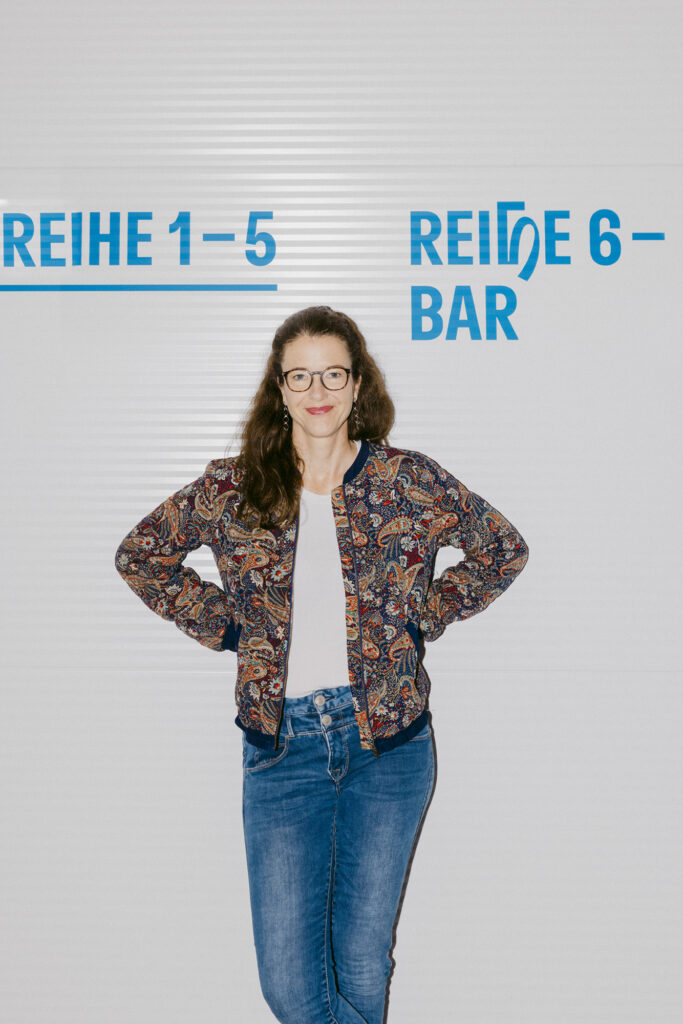
Christina Schulz
Theater an der Parkaue – Junges Staatstheater Berlin
Berlin definiert sich als Kulturmetropole. Hier trifft Hochkultur auf eine sich über alle Genres hinweg gefächerte freie Szene mit Angeboten so vielfältig wie die Stadtgesellschaft und die Berlinbesucher*innen an sich. Aber diese einzigartige Kulturlandschaft steht nicht mehr auf festem Fundament. Zum einen aufgrund der schwierigen Haushaltslage Berlins und der Notwendigkeit zu sparen. Auch wenn noch nie ein zusammengestrichener Kulturetat einen Landeshaushalt saniert hat, dennoch wird auch hier gespart werden müssen. Aber wie das geschieht und wie es trotzdem um Zukunftsfähigkeit gehen kann, dafür brauchen wir eine verlässliche Kulturpolitik. Zum anderen ist die vielfältige Kulturlandschaft aber auch in ihrem Wesen, ihrer Kunstfreiheit gefährdet, denn welche Angebote in den Berliner Bezirken und oder im Land Berlin gefördert werden sollen und welche nicht, wird längst durch antidemokratische Kräfte befragt und teilweise mitbestimmt. Kunst und Kultur in Berlin brauchen Dialog und kulturpolitisches Engagement, Zukunftsstrategien und Beratung der Kulturpolitik aus der Praxis. Als Intendantin im Kinder- und Jugendtheater ist mir dabei die Berücksichtigung der Perspektiven und die Teilhabe junger Menschen besonders wichtig.
Christina Schulz, geboren 1972 auf Rügen, ist promovierte Volkswirtin. Seit der Spielzeit 2021/22 leitet sie in Doppelintendanz gemeinsam mit dem Regisseur Alexander Riemenschneider das Theater an der Parkaue – Junges Staatstheater Berlin. Sie arbeitet kuratorisch, kulturpolitisch und initiiert Kooperationen des Theaters im Feld der Kunst für junges Publikum sowie mit Akteur*innen der kulturellen und politischen Bildung. Schwerpunkte ihrer Arbeit sind außerdem die diversitätssensible Organisationsentwicklung und die Öffnung des Hauses für vielfältige Perspektiven und Partizipation. Sie vertritt das Theater an der Parkaue in Initiativen wie Fairstage, Arbeitskreisen von Kinder- und Jugendtheatern in Berlin und bundesweit sowie im Landesverband des Berliner Bühnenvereins. Vor Beginn der Intendanz leitete Christina Schulz von 2009 bis 2021 die Bundeswettbewerbe der Berliner Festspiele, wo sie sich für die künstlerische Entwicklung junger Menschen einsetzte. 2013 gründete sie das Tanztreffen der Jugend. In ihrer Promotion widmete sie sich einer ordnungspolitischen Analyse des Systems der öffentlichen Kulturförderung in Deutschland im Bereich der Darstellenden Künste und setzte darin den Fokus auf das Feld der Kulturellen Bildung.
Berlin defines itself as a cultural metropolis. It is a place where high culture meets a diverse independent scene that spans all genres and is as diverse as the city’s society and its visitors. But this unique cultural landscape no longer stands on solid ground. This is partly due to Berlin’s difficult financial situation and the need to make savings. Even though cutting the cultural budget has never balanced a state budget, savings will have to be made here too. But we need a reliable cultural policy to determine how this will happen and how we can still ensure a sustainable future. On the other hand, the diverse cultural landscape is also endangered in its very essence, in its artistic freedom, because the question of which offerings in Berlin’s districts and/or in the state of Berlin should be supported and which should not has long been called into question and, in some cases, has been co-determined by anti-democratic forces. Art and culture in Berlin need dialogue and cultural-political commitment, future strategies and cultural-political advice from practitioners. As artistic director of a theatre for children and young people, I consider it particularly important to take into account the perspectives and participation of young people.
Christina Schulz, born in 1972 on Rügen, holds a PhD in economics. Since 2021, she has co-directed the Theater an der Parkaue – Junges Staatstheater Berlin together with director Alexander Riemenschneider. She works in curation and cultural policy and initiates the theater’s collaborations in the field of art for young audiences, as well as with actors in cultural and political education. Her work also focuses on diversity-sensitive organizational development and opening the institution to diverse perspectives and participation. She represents the Theater an der Parkaue in initiatives such as Fairstage, working groups of children’s and youth theaters in Berlin and nationwide as well as in the state association of the Berliner Bühnenverein. Before her current role, Christina Schulz led the national competitions of the Berliner Festspiele, from 2009 to 2021, where she advocated for the artistic development of young people. In 2013, she founded the Tanztreffen der Jugend. Her doctoral dissertation was dedicated to a regulatory policy analysis of the public cultural funding system in Germany in the field of performing arts, with a focus on cultural education.
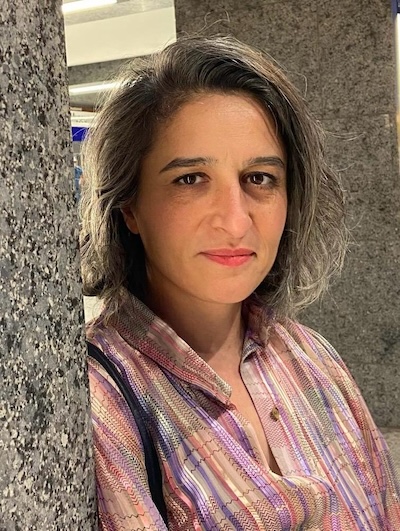
Eylem Sengezer
Kommunale Galerien Bezirk Mitte im Fachbereich Kunst, Kultur und Geschichte
Angesichts der Haushaltskürzungen und des gesellschaftlichen Rechtsrucks ist es wichtig, solidarische Netzwerke und marginalisierte Positionen zu stärken. In den Rat möchte ich mein Wissen zu Diversität und Antidiskriminierung und die kommunale Perspektive auf Kultur- und Stadtpolitik einbringen.
Eylem Sengezer studierte Neuere deutsche Literatur, Kunstgeschichte und Filmwissenschaften in Berlin und Rom. Seit Mai 2024 arbeitet sie für den Fachbereich Kunst, Kultur und Geschichte im Bezirksamt Mitte. Dort leitet sie aktuell das Sachgebiet Gegenwartskunst und die kommunalen Galerien im Bezirk Mitte. Sie war zuvor als Referentin für Diversity Arts Culture (2018-2024) tätig und hat insbesondere Berliner Kultureinrichtungen und die Senatsverwaltung für Kultur im Themenfeld Diversität und Antidiskriminierung beraten, aber auch Empowermentangebote für Künstler*innen und Kulturtätige of Color konzipiert und organisiert. Am Haus der Kulturen der Welt (2009-2018) verantwortete sie als Recherche- und Projektkoordinatorin Ausstellungs- und Diskursprojekte. Als freie Kuratorin realisierte sie Ausstellungen und Online-Projekte, u.a. in der nGbK und im Kunstraum Kreuzberg sowie begleitende Publikationen und Essays. Ein einjähriges Arbeitsstipendium und eine Residency des Goethe-Instituts führten sie nach Mexiko-Stadt und Neapel. Ihre kuratorischen Interessen liegen an der Schnittstelle von Erinnerungs- und Stadtkultur, Migration und Diversität. Von 2021-2024 war sie Mitglied im Präsidium der nGbK. Sie ist zudem ausgebildete Mediatorin.
In view of the budget cuts and the social shift to the right, it is important to strengthen solidarity networks and marginalized positions. I would like to contribute my knowledge on diversity and anti-discrimination as well as the municipal perspective on cultural and urban policy to the council.
Eylem Sengezer studied Modern German Literature, Art History and Film Studies in Berlin and Rome. She’s been working for the Department of Art, Culture and History at the Mitte district office since May 2024. She is currently head of the contemporary art section and the municipal galleries in the Mitte district. She previously worked for Diversity Arts Culture (2018-2024) where she advised Berlin cultural institutions and the Senate Department for Culture on diversity and anti-discrimination, but also conceived and organized empowerment workshops for artists and cultural workers of color. And before that, she was a research and project coordinator at Haus der Kulturen der Welt (2009-2018), where she worked on various exhibition and discourse projects. As a freelance curator, she’s realized exhibitions and online projects, including at nGbK and Kunstraum Kreuzberg, as well as accompanying publications and essays. A one-year working scholarship and a residency from the Goethe-Institut took her to Mexico City and Naples. Her curatorial interests lie at the intersection of memory and urban culture, migration and diversity. From 2021-2024 she was a member of the nGbK board. She is also a trained mediator.
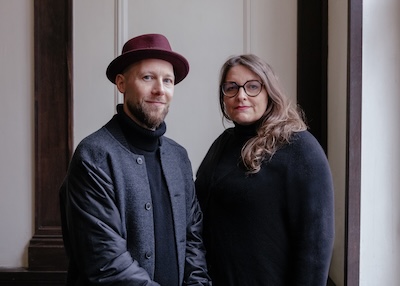
Lennart Siebert & Julia Brodauf
Wir bewerben uns um einen Sitz im Rat der Künste, um die Situation der künstlerischen Arbeitsräume sichtbar zu machen, ihre Bedeutung für die kulturelle Vielfalt Berlins zu betonen und konkrete Ideen einzubringen, wie das Raumangebot für alle Kunstschaffenden nachhaltig verbessert werden kann.
Julia Brodauf und Lennart Siebert teilen sich als Atelierbeauftragte ein Aufgabenfeld, das künstlerische Praxis und kulturpolitische Strategie miteinander verbindet – und bringen dafür sich ergänzende Kompetenzen ein. Brodauf ist bildende Künstlerin, Autorin und Kuratorin. Ihre langjährige Erfahrung in der Kunstproduktion, Lehre und Selbstorganisation – u.a. als Mitgründerin und Leiterin von artspring berlin – macht sie zur profunden Kennerin der Lebens- und Arbeitsrealitäten freischaffender Künstler:innen. In Publikationen und Lehraufträgen setzt sie sich für eine emanzipierte Künstler:innenrolle in Gesellschaft und Kunstwelt ein. Siebert ist Kulturmanager mit Fokus auf gemeinwohlorientierte Kultur- und Liegenschaftspolitik. Mit einem Hintergrund in internationalem Kulturmanagement engagiert er sich seit Jahren in Berlin für den Erhalt kultureller Räume und eine sozial gerechte Stadtentwicklung – als Berater, Gründer und Vorstand verschiedener Initiativen. Im gemeinsamen Job-Sharing verbinden sie Praxisnähe und kulturpolitisches Know-how. Sie verstehen Atelierräume als unverzichtbare Infrastruktur für die kulturelle Vielfalt Berlins – und setzen sich mit vereinten Kräften für deren langfristige Sicherung ein.
We are applying to highlight the situation of artistic workspaces, emphasize their importance for Berlin’s cultural diversity, and contribute concrete ideas on how to sustainably improve access to space for all art practitioners.
Julia Brodauf and Lennart Siebert share the role of studio commissioners, a position that bridges artistic practice and cultural policy strategy – and they bring complementary skills to the table. Brodauf is a visual artist, author, and curator. Her many years of experience in art production, teaching, and self-organization – including as co-founder and director of artspring berlin – make her a profound expert on the living and working realities of freelance artists. In her publications and teaching, she advocates for an emancipated role of artists in both society and the art world. Siebert is a cultural manager specializing in culture and real estate policy oriented toward the common good. With a background in international cultural management, he has long been active in Berlin in the preservation of cultural spaces and socially equitable urban development – as an advisor, founder, and board member of various initiatives. In their shared role, they combine hands-on experience with cultural policy expertise. They see studio spaces as essential infrastructure for Berlin’s cultural diversity – and are jointly committed to securing them for the long term.
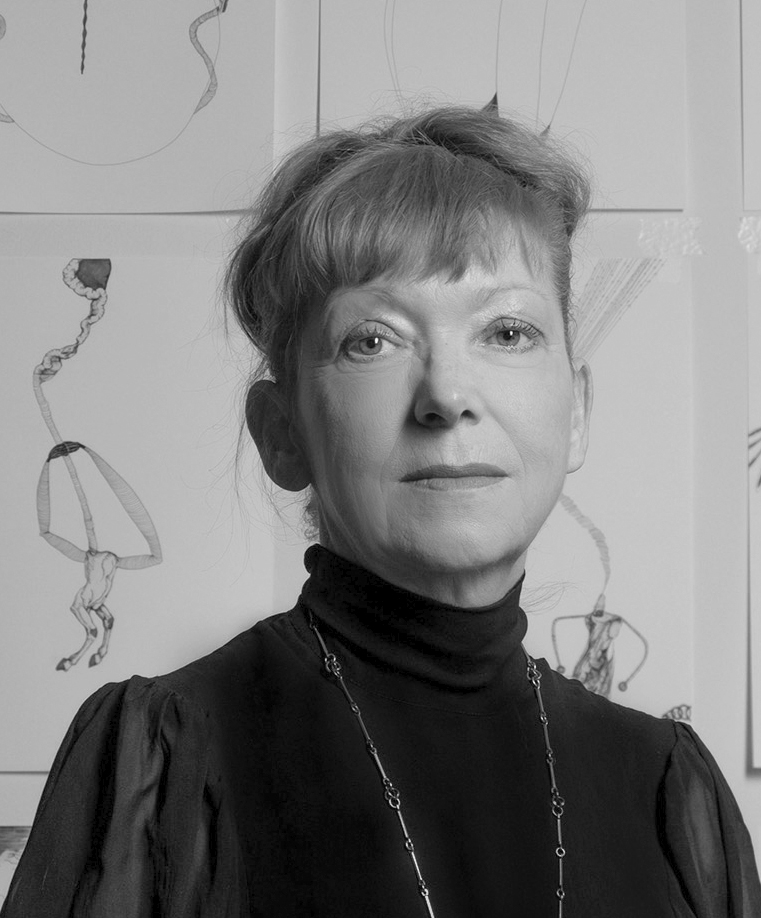
Heidi Sill
Seit vielen Jahren setze ich mich engagiert für die Interessen der Künstler*innen zur Verbesserung ihrer Lebens- und Arbeitsbedingungen im Austausch mit Politik und Fachöffentlichkeit ein. Diese Perspektive möchte ich als freischaffende Künstlerin weiterhin aktiv in die Arbeit des Rates einbringen.
Geb. in Fürth/Bayern. Lebt und arbeitet seit 2002 in Berlin. Studium der Freien Grafik und Malerei an der Akademie der Bildenden Künste Nürnberg. Stipendiatin am Institut des Hautes Etudes en Arts Plastiques Paris.
Lehrtätigkeiten: Ecole Supérieure d’Art et Design Grenoble-Valence, HAW Hamburg und aktuell Muthesius Kunsthochschule Kiel und Universität der Künste Berlin.
Zahlreiche Stipendien und Preise: u.a. Kunstfonds Stipendium, Kulturstiftung Schloss Wiepersdorf, Arbeitsstipendium Bildende Kunst Berlin, Kunstpreis der Nürnberger Nachrichten, Stiftung Künstlerdorf Schöppingen, Konrad-Adenauer-Stiftung, Cité Internationale des Arts Paris. Preisträgerin mehrerer Wettbewerbe für Kunst im öffentlichen Raum: u.a. Physikalisch-Technische Bundesanstalt Berlin, Deutscher Bundestag Schadowstrasse Berlin, Künstlerhaus Nürnberg, Frankenschnellweg Nürnberg, Shell Haus GASAG Berlin.
Ehrenamtliche Tätigkeiten:
2005-08 Mitglied im kuratorischen Team der 2yk Galerie, Berlin
2011-15 Mitarbeit in der Diskussions- und Aktionsplattform Haben und Brauchen
2014-15 Sprecherin Haben und Brauchen zusammen mit Julia Lazarus
2013-16 Vorstandsmitglied Deutscher Künstlerbund
2013-19 Fachausschuss Bildung im Deutschen Kulturrat
2016 erste Frau an der Spitze des Vorstands des berufsverbands bildender künstler*innen berlin, 2017-2022 Sprecherin des bbk berlin in Doppelspitze.
For many years, I have been a committed advocate for the interests of artists to improve their living and working conditions in dialogue with politicians and the professional public. As a freelance artist, I would like to continue this perspective to the work of the Rat für die Künste Berlin.
Born in Fürth/Bavaria. Lives and works in Berlin since 2002. Studied free graphics and painting at the Academy of Fine Arts Nuremberg. Scholarship holder at the Institut des Hautes Etudes en Arts Plastiques Paris.
Teaching activities: Ecole Supérieure d’Art et Design Grenoble-Valence, HAW Hamburg and currently Muthesius Kunsthochschule Kiel and Universität der Künste Berlin.
Honorary activities:
2005-08 Member of the curatorial team of the 2yk Gallery, Berlin
2011-15 Collaboration in the discussion and action platform Haben und Brauchen
2014-15 Spokesperson for Haben und Brauchen together with Julia Lazarus
2013-16 Member of the board of Deutscher Künstlerbund
2013-19 Expert committee on education in the German Cultural Council
2016 first woman to head the board of the berufsverband bildender künstler*innen berlin, 2017-2022 spokesperson for the bbk berlin in dual leadership.
Numerous scholarships and prizes: e.g. Kunstfonds Stipendium, Kulturstiftung Schloss Wiepersdorf, Arbeitsstipendium Bildende Kunst Berlin, Kunstpreis der Nürnberger Nachrichten, Stiftung Künstlerdorf Schöppingen, Konrad-Adenauer-Stiftung, Cité Internationale des Arts Paris. Winner of several competitions for art in public spaces: e.g. Physikalisch-Technische Bundesanstalt Berlin, Deutscher Bundestag Schadowstrasse Berlin, Künstlerhaus Nürnberg, Frankenschnellweg Nürnberg, Shell Haus GASAG Berlin.
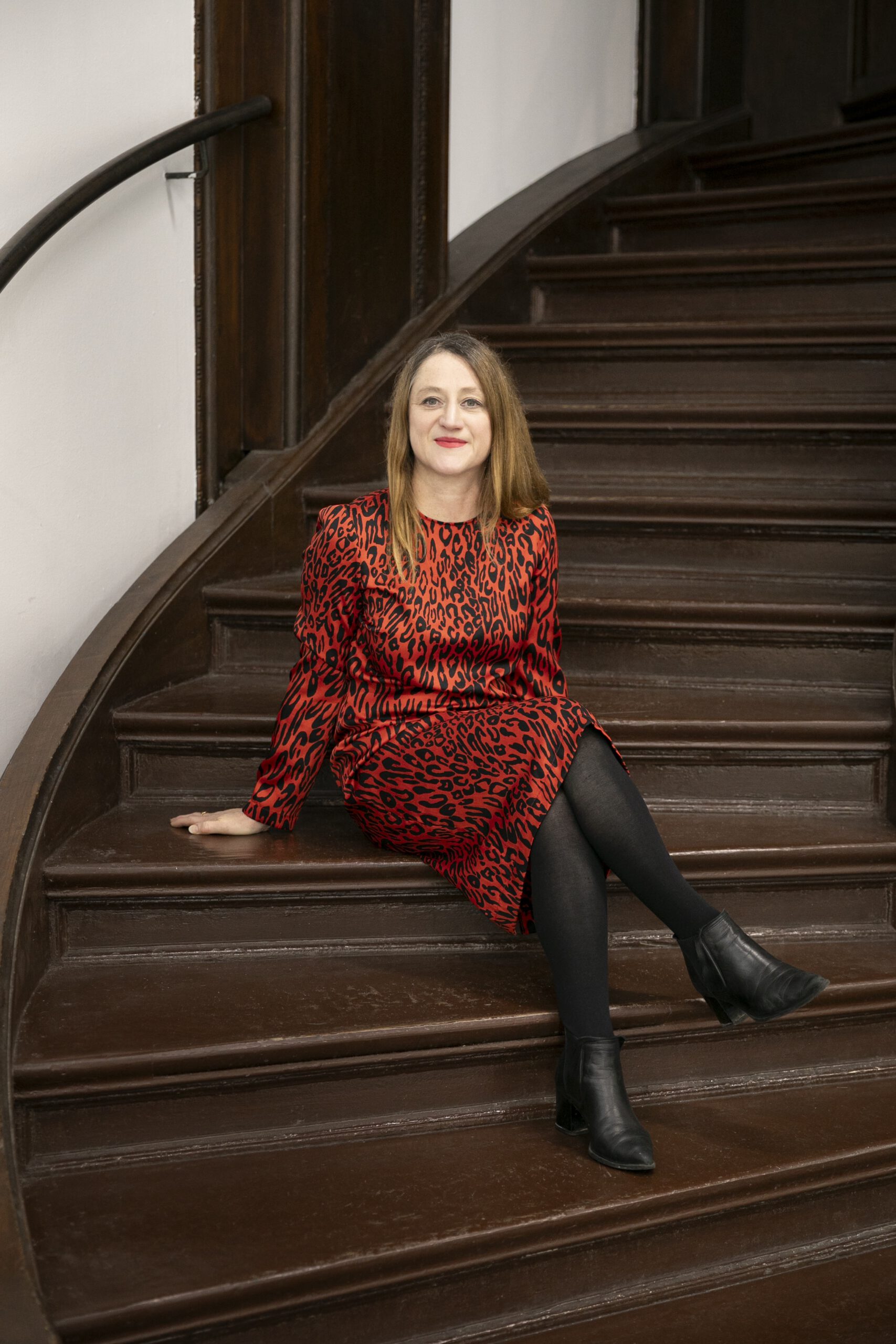
Antje Weitzel
Meine Stimme steht für eine unabhängige und solidarische Kunstszene. Ich setze mich für die Sichtbarkeit der Bildenden Kunst und für die Bewahrung ihrer Vielfalt ein – als Raum für demokratische Teilhabe und kritisches Denken. Kunst muss auch in Zukunft ein Motor für Veränderung bleiben.
Meine Stimme steht für eine unabhängige und solidarische Kunstszene. Ich setze mich für die Sichtbarkeit der Bildenden Kunst und für die Bewahrung ihrer Vielfalt ein – als Raum für demokratische Teilhabe und kritisches Denken. Kunst muss auch in Zukunft ein Motor für Veränderung bleiben.
Antje Weitzel is a curator and cultural manager based in Berlin. In October 2024, she assumed the role of artistic and managing director of the renowned Künstlerhaus Bethanien, bringing her extensive expertise and vision to shape its future.
Prior to this, she worked as project manager for the Berlin Biennale for Contemporary Art from 2014 onwards. Weitzel also co-ran and curated the project space uqbar in Berlin-Wedding from 2007 to 2022. She has curated exhibitions at various institutions such as Kunstraum Kreuzberg, Galerie im Körnerpark, nGbK, Maxim Gorki Theatre, and the Akademie der Künste. Her work reflects a deep understanding of the dynamics of the contemporary art world and a commitment to its ongoing development
My voice stands for an independent art scene grounded in solidarity. I fight for the visibility and diversity of the visual arts – as a space for democratic participation and critical reflection. Art must continue to be a driving force for change.
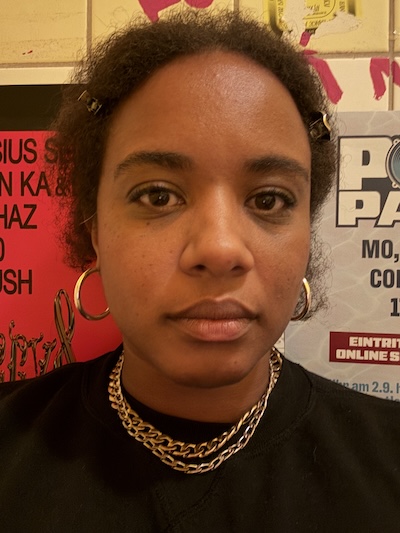
Anna Yeboah
Dekoloniale /
Initiative Schwarze Menschen in Deutschland e.V.
Ich setze mich dafür ein, dass die Berliner Kulturlandschaft vielfältig und politisch bleibt und ein Umfeld schafft, in dem unterschiedliche Perspektiven sichtbar werden und gemeinsam gearbeitet werden kann. Besonders am Herzen liegt mir die Stärkung von BIPoC-Communities sowie ein verantwortungsvoller und kritischer Umgang mit dem Kolonialismus und seinen strukturellen Folgen.
Anna Yeboah ist Kuratorin, Architektin und Aktivistin und verantwortete die Gesamtkoordination des fünfjährigen Modellprojekts „Dekoloniale Erinnerungskultur in der Stadt“ für die Initiative Schwarzer Menschen in Deutschland e.V. In ihren Ausstellungen, Vorträgen und interdisziplinären Projekten befasst sie sich mit Machtsystemen im gebauten Raum, Erinnerungskultur und der Dekolonisierung von Bau- und Kulturpraxis. Ihre Untersuchungen zum Thema wurden unter anderem auf den Biennalen in Venedig und Chicago gezeigt, sowie in internationalen Fachmedien veröffentlicht. In Berlin war sie u.a. für das Architekturbüro brandlhuber + tätig. Anna Yeboah war außerdem Dozentin am Institut für Geschichte und Theorie Gestaltung der Universität der Künste Berlin.
I am committed to ensuring that Berlin’s cultural landscape remains diverse and political, creating a space where different perspectives can be visible and collaborative work can take place. I am especially dedicated to strengthening BIPoC communities and to fostering a responsible and critical engagement with colonialism and its structural consequences.
Anna Yeboah is a curator, architect, and activist. She was responsible for the overall coordination of the five-year model project „Decolonial Memory Culture in the City“ on behalf of the Initiative of Black People in Germany (ISD). In her exhibitions, lectures, and interdisciplinary projects, she explores power structures in built environments, memory culture, and the decolonization of architectural and cultural practices. Her work has been presented at the Venice and Chicago Biennials, among others, and published in international professional media. In Berlin, she has worked with the architecture firm brandlhuber+. Anna Yeboah has also taught at the Institute for History and Theory of Design at the Berlin University of the Arts.
Vorhergehende Besetzungen des Rates
2023-2025
- Kefah Ali Deeb, coculture e.V. & Arab Digital Expression Berlin e.V.
- Oliver Baurhenn, Gründungsdirektor CTM Festival for Adventurous Music and Art
- Dorothee Bienert, Fachbereich Kultur und Kommunale Galerien Neukölln
- Kate Brehme, Berlinklusion
- Fatima Çalışkan, ehemals PAP Berlin
- Wagner Carvalho, Ballhaus Naunynstraße
- Matthias Einhoff – ZKU
- Silvia Fehrmann, Berliner Künstlerprogramm des DAAD
- Benjamin Foerster Baldenius, raumlaborberlin
- Sabine Kroner, Berlin Mondiale
- Teena Lange, Grüntaler9, Netzwerk freier Berliner Projekträume und -initiativen
- Annette Maechtel – neue Gesellschaft für bildende Kunst (nGbK)
- Matthias Mohr – Radialsystem
- Anna-Katharina Müller, ehemals Berliner Festspiele/Theatertreffen, jetzt Suhrkamp
- Daniel Neugebauer, Haus der Kulturen der Welt (HKW)
- Janina Paul, Konzerthaus Berlin
- Matthias Pees, Berliner Festspiele
- Marianne Ramsay-Sonneck – LAFT
- Rebecca Raue, Ephra e.V.
- Lisa Marei Schmidt, Brücke Museum
- Julia Schreiner, Stadttheater Spandau/LAFT
- Heidi Sill, ehemals berufsverband bildender künstler*innen berlin, freischaffende Künstlerin
- Franziska Werner, ehemals Sophiensaele Berlin, jetzt Impulse Festival
- Annette Wostrak, LesArt, Berliner Zentrum für Kinder- und Jugendliteratur
Sprecher*innen: Franziska Werner und Oliver Baurhenn, Vertreter*innen: Fatima Çalışkan (bis Ende 2023), Daniel Neugebauer, Sabine Kroner (ab Beginn 2024)
2019-2022
Mustafa Akça, Markus Bader, Oliver Baurhenn, Dorothee Bienert, Christoff Bleidt, Wagner Carvalho, Silvia Fehrmann, Jens Hillje, Eva-Maria Hoerster, Çağla İlk, Sebastian König, Sabine Kroner, Teena Lange, Barbara Meyer, Elisa Müller, Daniel Neugebauer, Thorsten Schlenger, Paul Spies, Dr. Christina Schulz, Danilo Vetter, Antje Weitzel, Franziska Werner, Kay Wuschek
Sprecher*innen: Silvia Fehrmann und Oliver Baurhenn
2017-2018
Andreas Altenhof, Markus Bader, Stéphane Bauer, Oliver Baurhenn, Gabi Beier, Christoff Bleidt, Wagner Carvalho, Silvia Fehrmann, Eva-Maria Hoerster, Gabriele Horn, Cagla Ilk, Jörg Königsdorf, Teena Lange, Jeanine Meerapfel, Barbara Meyer, Elisa Müller, Christoph Rieger, Florian Schmidt, Martin Steffens, Alexander Steinbeis, Christina Tilmann, Julia Weis, Franziska Werner, Kay Wuschek
Sprecher*innen: Silvia Fehrmann und Andreas Altenhof
2016-2017
Fadi Abdelnour, Andreas Altenhof, Stéphane Bauer, Leonie Baumann, Oliver Baurhenn, Gabi Beier, Christoff Bleidt, Yvonne Büdenhölzer, Wagner Carvalho, Silvia Fehrmann, Eva-Maria Hoerster, Gabriele Horn, Çağla Ilk, Ulrich Khuon, Sandra Klöss, Dorothea Kolland, Christoph Rieger, Jochen Sandig, Florian Schmidt, Martin Steffens, Georg Vierthaler, Franziska Werner, Kay Wuschek
2014-2015
NN.
2012-2013
NN.
2010-2011
Julien Enoka Ayemba – Filmkritiker und Kurator
Marius Babias – Neuer Berliner Kunstverein
Stéphane Bauer – Kunstraum Kreuzberg/ Bethanien
Leonie Baumann – Kunsthochschule Berlin-Weißensee
Christoff Bleidt – Theaterhaus Mitte
Adrienne Boros – Freie Volksbühne Berlin
Michael Fehr – Institut für Kunst im Kontext
Silvia Fehrmann – Haus der Kulturen der Welt
Brigitta Gabrin – Radio multikult.2.0
Gabriele Horn – Kunst-Werke Berlin
Cornelia Horsch – IDZ Internationales Design Zentrum
Ulrich Khuon – Deutsches Theater
Iris Laufenberg – Berliner Festspiele
Claudia Lux – Stiftung Zentral – und Landesbibliothek Berlin
Evelin Müller – Bezirksamt Lichtenberg, Amt für Weiterbildung
Kathatrina Nabotuvic – Berliner Künstlerprogramm DAAD
Matthias Osterwold – MaerzMusik
Christian Römer- Neuköllner Oper
Jochen Sandig – Radialsystem und Sasha Waltz & Guests
Max Schumacher – Landesveraband Freie Theaterschaffende Berlin e.V.
Martin Steffens – 48h Neukölln
Kay Wuschek – Theater an der Parkaue
2008 – 2009
Stéphane BAUER – Leiter Kunstraum Kreuzberg/Bethanien
Leonie BAUMANN – Geschäftsführerin NGBK
Ulrike BECKER – Künstlerische Leiterin TanzWerkStatt
Adrienne BOROS – Geschäftsführerin Freie Volksbühne Berlin
Andreas BROECKMANN – Kurator, Tesla
Björn DÖRING – Kurator, Leiter Musikbüro Arena und Admiralspalast
Philippa EBENA – Leiterin Werkstatt der Kulturen
Bernhard GLOCKSIN – Künstlerischer Leiter Neuköllner Oper
Doreen GOLDBECK – Geschäftsführerin ACUDkunst und -kulturhaus
Gabriele HORN – Direktorin Kunst-Werke Institute for Contemporary Art
Dorothea KOLLAND – Leiterin Kulturamt Neukölln
Shermin LANGHOFF – Leiterin Ballhaus Naunynstraße
Matthias LILIENTHAL – Intendant Hebbel am Ufer (HAU)
Cathy MILLIKEN – Philharmonie / Leiterin Education
Matthias OSTERWOLD – Stellvertretender Intendant BFS, künstlerischer Leiter Maerzmusik
Jochen SANDIG – Künstlerischer Leiter Radialsystem und Sasha Waltz & Guests
Bernd M. SCHERER – Intendant Haus der Kulturen der Welt
Stefanie SCHULTE STRATHAUS – Vorstand Freunde der Deutschen Kinemathek e.V.
Thomas WOHLFAHRT – Leiter Literaturwerkstatt Berlin
Kay WUSCHEK – Intendant Theater an der Parkaue
